One Week in Bavaria Itinerary—An Ultimate Guide for Exploring Historical Towns and Bavarian Alps

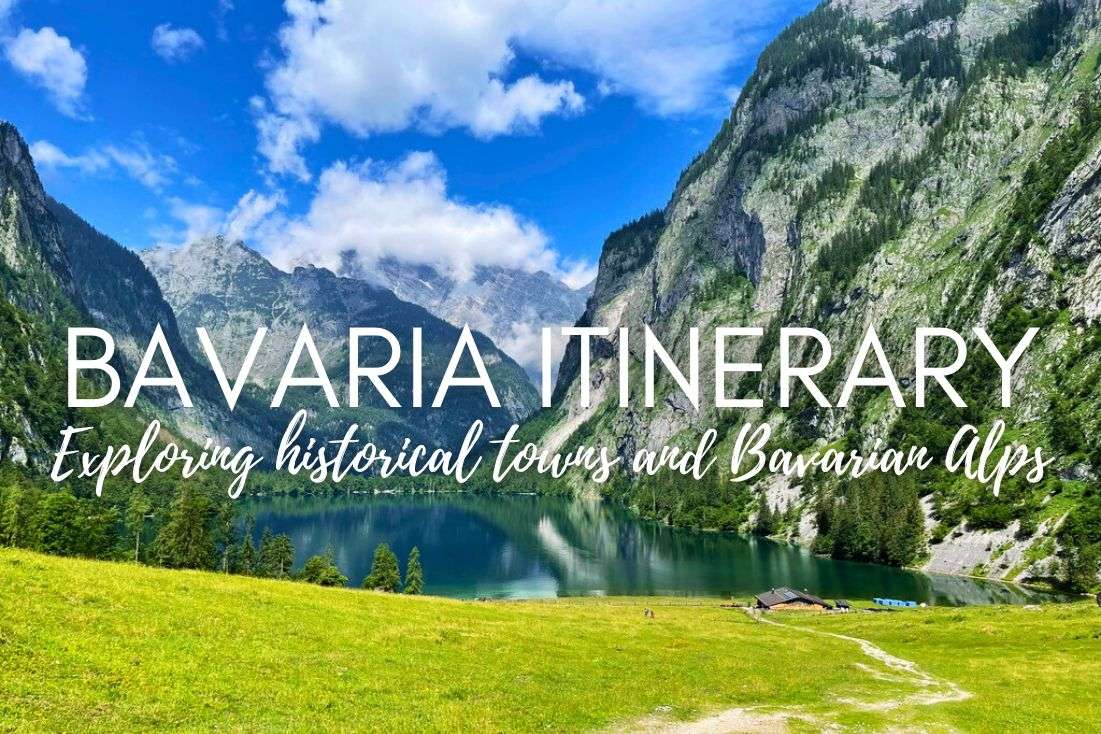
Day 1: Explore Nuremberg’s History—Medieval Castles, Nazi Sites & Bratwurst
Day 2: Regensburg’s Old Town, Roman Bridges & Thurn und Taxis Palace
Day 3: Hike (or Bus) to Eagle’s Nest—Scenery, Nazi history & German food with a view
Day 4 of the Bavaria itinerary: Berchtesgaden—Salt Mines, Alpine Hikes & National Park Wonders
Day 5: Königssee Lake Cruise, Obersee Hike & Alpine Views
Day 6: Garmisch-Partenkirchen—Zugspitze Views & Partnach Gorge Hike
Day 7: Neuschwanstein Castle Visit—How to See Germany’s Most Famous Palace
My top tips for visiting Bavaria
You might also be interested in reading:
Day 1, stop 1: Nuremberg Castle
Day 1, stop 2: Albrecht Dürer’s house
Day 1, stop 3: Hauptmarkt + Frauen Kirche
Day 1, stop 4: Nuremberg Trial Memorial
Day 1, stop 5: Documentation Center Nazi Rally Party
Day 2, stop 1: St. Peter's Cathedral
Day 2, stop 3: Thun and Taxis Palace
Day 4, stop 1: House of the Mountains
Day 4, stop 3: Wimbach Gorge hike and beyond
Day 4, stop 4: Watzmann Therme
Updated for 2025: All prices, opening hours, and practical info have been fully updated for 2025. I’ve included a note about the ongoing renovation of the Documentation Center Nazi Party Rally Grounds, and some practical travel tips for Bavaria at the end of the article.
I thought one week in Bavaria would be plenty to see everything, but after visiting a number of times, I started doubting it could be done. Seriously, this southeast German region is stuffed with more medieval towns, alpine lakes, and castles than most countries cram into their entire borders, and my “must-visit places in Bavaria” list just kept getting longer and longer. The thought of putting together a realistic one-week Bavaria itinerary just kept getting more and more daunting, to be honest.
But alas, I’m a meticulous (and slightly obsessive) planner, so I accepted the challenge and worked out the most efficient way to see everything that’s actually worth seeing. Phew! This 7-day Bavaria road trip will take you from Nuremberg to the Bavarian Alps, hitting only the most spectacular and worthwhile stops—no tourist traps, no time-wasting detours.
You’ll need a car for this route. Good news: Germany’s autobahns (highways) are in perfect condition, and it helps that you can go as fast as you want, too.
Read more from my Germany travel blog.
This is my Bavaria itinerary:
Day 1: Nuremberg (sleep in Nuremberg)
Day 2: Regensburg (sleep in Nuremberg)
Day 3: Eagle's Nest (sleep in Berchtesgaden)
Day 4: Berchtesgaden (sleep in Berchtesgaden)
Day 5: Königsee (sleep in Garmisch-Partenkirchen)
Day 6: Garmisch-Partenkirchen (sleep in Garmisch-Partenkirchen)
Day 7: Neuschwanstein Castle (sleep in Garmisch-Partenkirchen)

My itinerary is basically a clockwise loop route, so you could theoretically start your trip on any day of the plan I made and just keep going until you hit every stop. Munich airport is smack in the middle of it all, so if you’re arriving there, any place on my itinerary is a plausible starting point. You don’t necessarily need to start in Nuremberg—for example, if you’re already in Salzburg, you can just hop over the border and start in Berchtesgaden.
You can see it better when you look at a map:
Bavaria map
I’ve highlighted the places you’ll be visiting on my Bavaria itinerary on this map. Notice they’re all centered around Munich, arranged in a loop
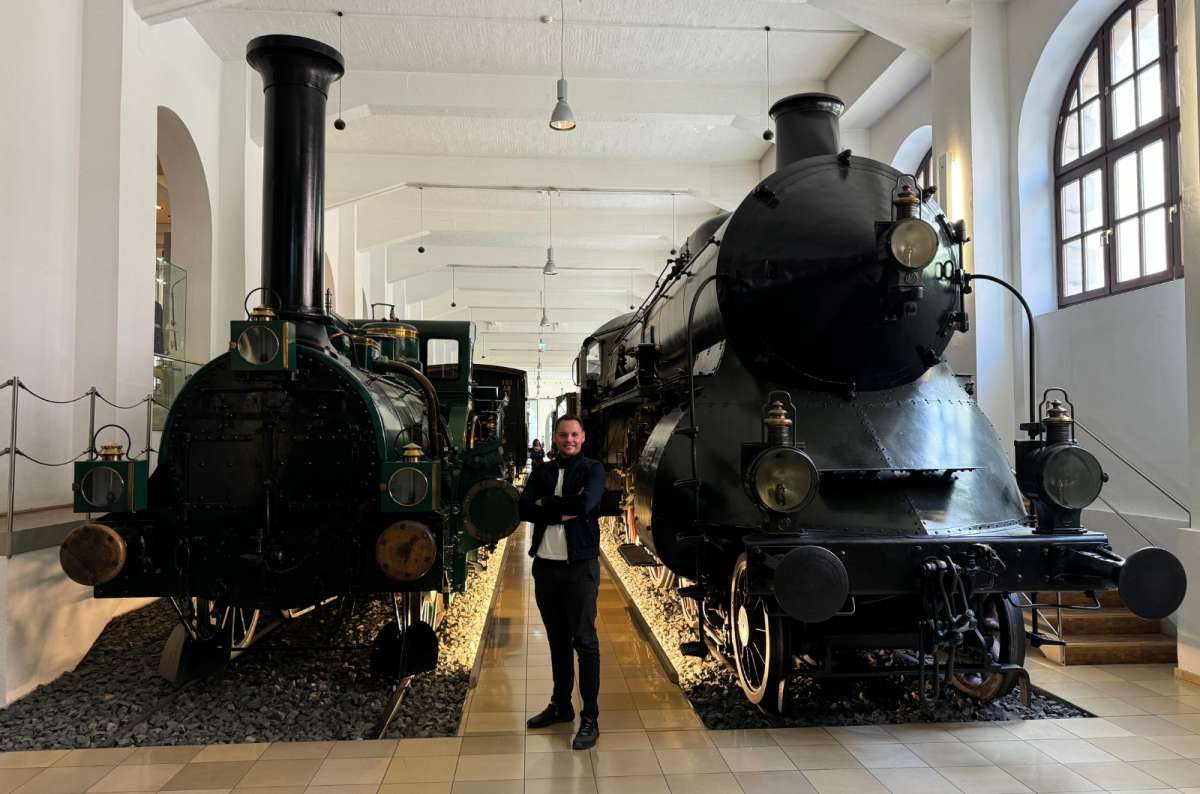
Let me be the conductor on your journey through Bavaria @ Nuremberg Railway Museum (more about this museum in my Nuremberg itinerary)
Sometimes, all you need to do is take the first step... I've filtered out the best hotels in Nuremberg for you
Save it for yourself to come back to later, or share with your friends on social media!
Day 1: Explore Nuremberg’s History—Medieval Castles, Nazi Sites & Bratwurst
The highlights of day 1 in Bavaria
Main sites visited on day 1: Nuremberg Castle, Albrecht Dürer’s house, Hauptmarkt + Frauen Kirche, Germanisches National Museum, Nuremberg Nazi Rally Party, Nuremberg Trials Memorial
Restaurant tips: Bratwursthäusle | Bratwurst Röslein | Machhörndl Kaffee
Hotel recommendations: The Park Plaza Hotel
Further reading: What to do in Nuremberg | One day in Nuremberg itinerary
We've spent the first day of this Bavaria trip Itinerary in the second biggest city of this federal state. It's full of beautiful architecture and interesting places that you can perfectly fit into a 1-day visit.
Nuremberg is a city that's famous because of its history more than anything else. So, some of the places you're going to visit will be somehow connected to the past of Nazi Germany.
Day 1, stop 1: Nuremberg Castle
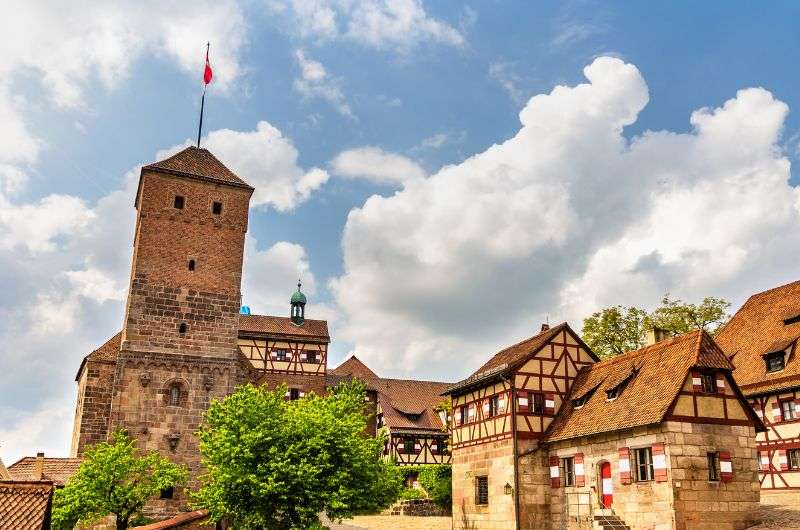
Looks a little bit crooked, doesn’t it?
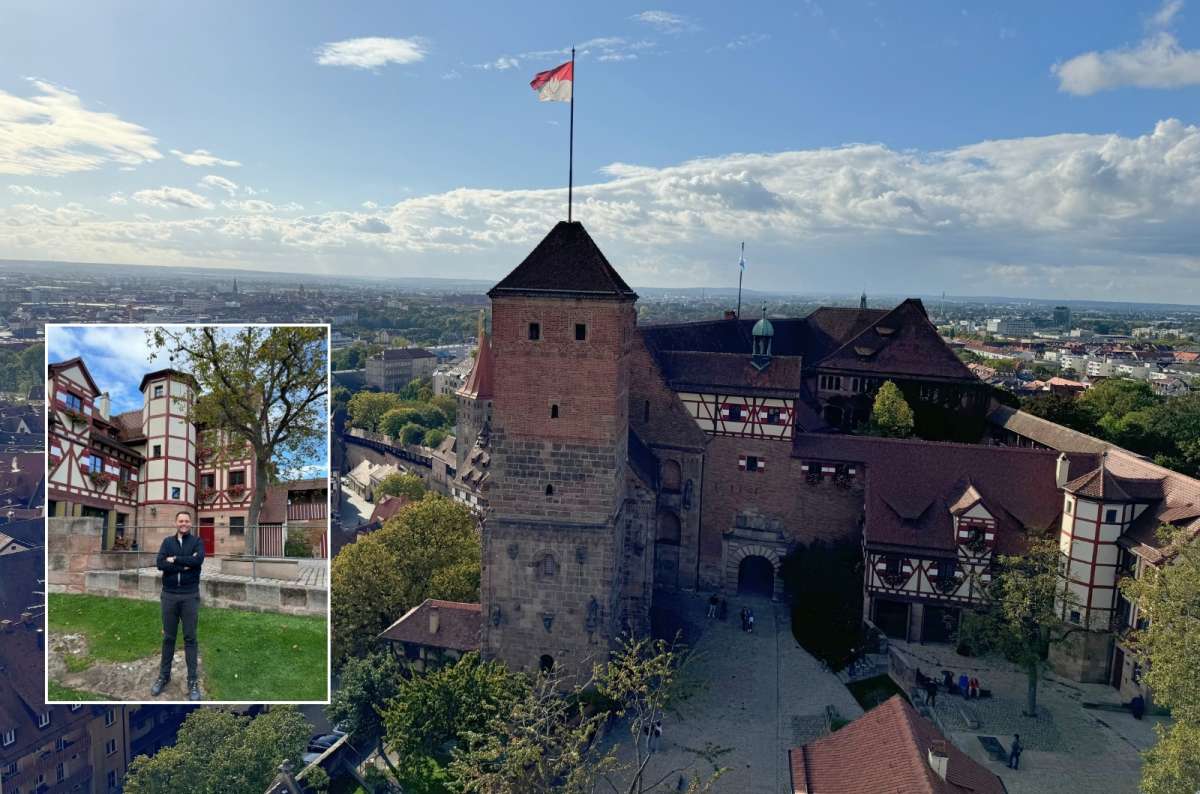
Nuremberg Castle will taky you back to the time you were a kid dreaming of becoming a knight
-
Opening hours: daily 9 am–6 pm April to September, daily 10 am–4 pm October to March
-
Tickets: EUR 9, but you can buy access to just some areas for less; gardens are free
The best place to start your tour of Nuremberg would be Nuremberg Castle. Inside the castle is not as interesting as the medieval exterior architecture, and almost no information in English is provided there, and it's not guided either.
Day 1, stop 2: Albrecht Dürer’s house
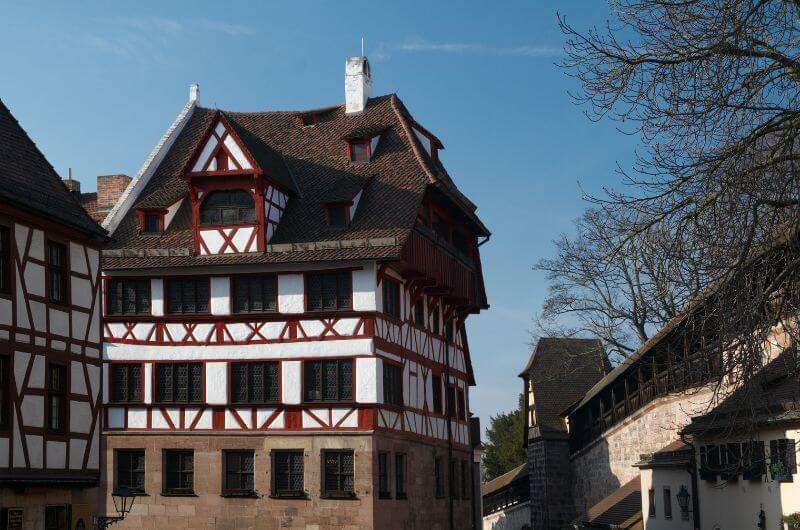
Albrecht Dürer’s house
-
Opening hours: Tuesday to Friday 10 am—5 pm, Saturday and Sunday 10 am—6 pm (July to September and December also on Monday 10 am—5 pm)
-
Tickets: EUR 7.50
A few minutes' walk from the castle is, in my opinion, the top attraction of Nuremberg, Albrecht Dürer’s house. The famous painter lived there from 1509 until his death in 1528. The house has five open stories full of his marvelous paintings or recreation of his studio, all connected by telling the story of his life.
Day 1, stop 3: Hauptmarkt + Frauen Kirche
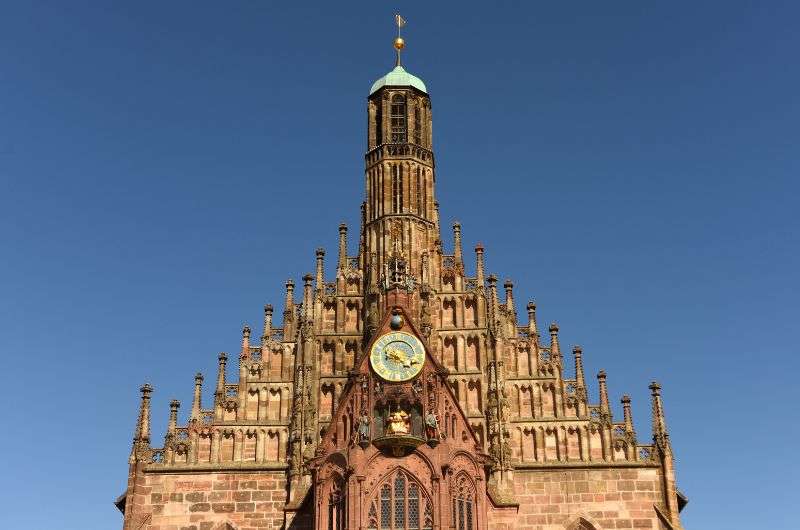
Frauen Kirche at Hauptmarkt in Nuremberg
- Opening hours: Tuesday, Thursday to Sunday 10 am–6 pm, Wednesday 10 am–8:30 pm
- Tickets: EUR 10
Almost all the interesting attractions lie within walking distance of each other in the Old Town area. In its heart lies Hauptmarkt and Frauen Kirche as its crown jewel. A breathtaking gothic building you can't miss, just stop by for a while and be amazed. I sure was! Entrance is free, so don’t hesitate to peek inside!
The second part of your day will be rather educational, as by now you’re already smitten with the perfectly decorated facades and monumental buildings. The first stop simply has to be the Germanisches National Museum.
There are plenty of interesting things and facts for you to see. Too bad you won't understand them, unless you speak German. EVERYTHING is in German there, ja? So, if you can't speak German, get an audio guide for EUR, or you won't learn a thing.
Day 1, stop 4: Nuremberg Trial Memorial
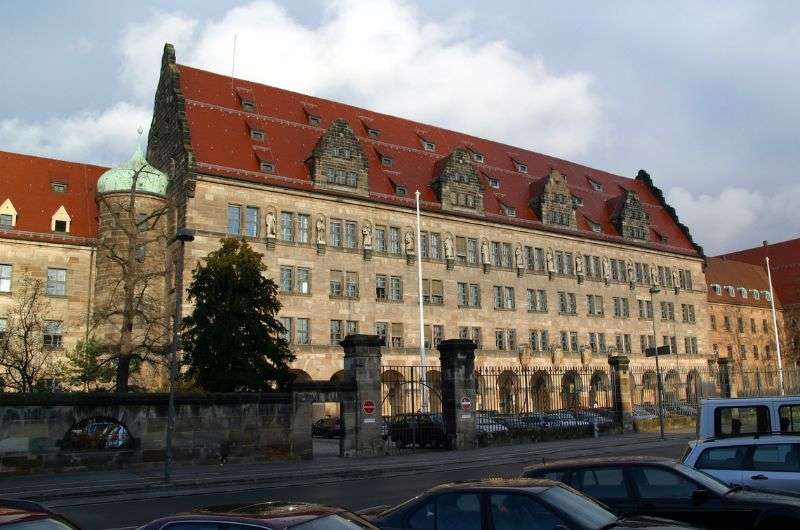
Nuremberg Trial Memorial is still active in the Palace of Justice
-
Opening hours: Wednesday to Monday, 10 am–6 pm (opening hours can vary throughout the year)
-
Tickets: EUR 6
Further stops are closely connected to World War II history. The famous Nuremberg Trials took place in the Nuremberg Palace of Justice, where the leaders of the Nazi regime had to answer for their crimes in a courtroom that's still active to this day. In the Palace's top floor, you will find the memorial dedicated to Trials with the exhibition full of information about horrific Nazi crimes.

Day 1, stop 5: Documentation Center Nazi Rally Party
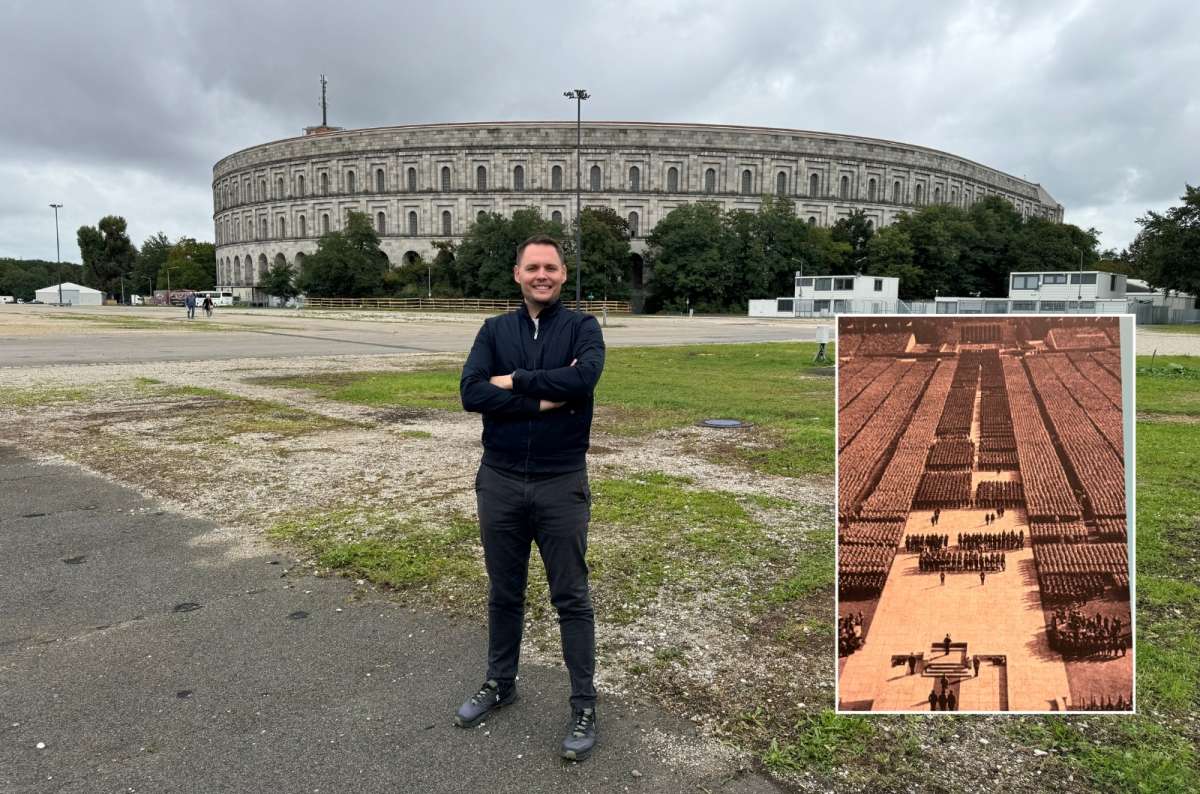
The Nazi Rally can make you feel really mixed emotions
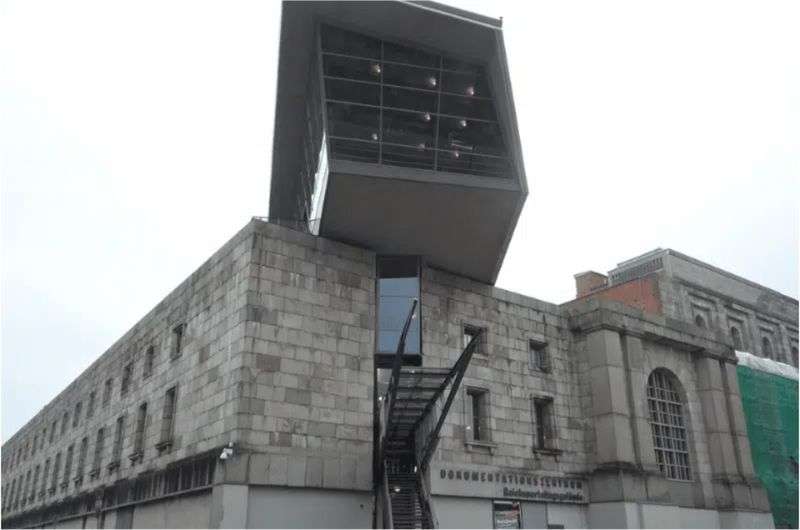
Both breathtaking and terrifying at the same time
-
Opening hours: daily 10 am– 6 pm
-
Tickets: EUR 8.25
Nazis chose Nuremberg as their headquarters for the massive propaganda rallies even before they came to power in 1933. Documentation Center Nazi Party Rally Grounds is a museum with exhibition dedicated to Nazi history. It’s an impressive and dark place, I got chills just standing there. It's an important monument explaining the reality of the Nazi regime and most importantly its origins, which need to be reminded.
Note (2025 remodeling update):
The permanent exhibition at the Documentation Center is closed for remodeling until 2026. But don’t cancel your trip just yet—there’s an interim exhibition that offers a solid, though limited, insight into the Nazi Party Rallies and the disturbing history surrounding them. It’s still worth a stop.
Hotel in Nuremberg
For the first two nights, it's best to stay in Nuremberg. From my great experience, I can recommend the hotel we stayed in. The Park Plaza Hotel is in a perfect location within walking distance of the Altstadt. Together with clean rooms, wonderful stuff, and a fresh buffet-style breakfast, it makes a perfect value for your money option.
Nice design and amazing clean rooms, we enjoyed the Park Plaza Hotel in Nuremberg.
Day 2: Regensburg’s Old Town, Roman Bridges & Thurn und Taxis Palace
See the route of today’s itinerary on Google Maps
Main sites visited on day 2: St. Peter's Cathedral, Steinerne Brücke, Regensburg Altstadt, Altes Rathaus, Thurn and Taxis Palace
Restaurant tips: Storstad | Gasthaus Hummel
Hotel recommendations: The Park Plaza Hotel
Further reading: 13 best places in Dresden
The infrastructure and highways in Germany are in exquisite condition, you can drive almost everywhere in no time. From Nuremberg to Regensburg, it'll take you about 1 hour and 15 minutes, and you're there! Ready for another day of the week in the Bavaria itinerary!
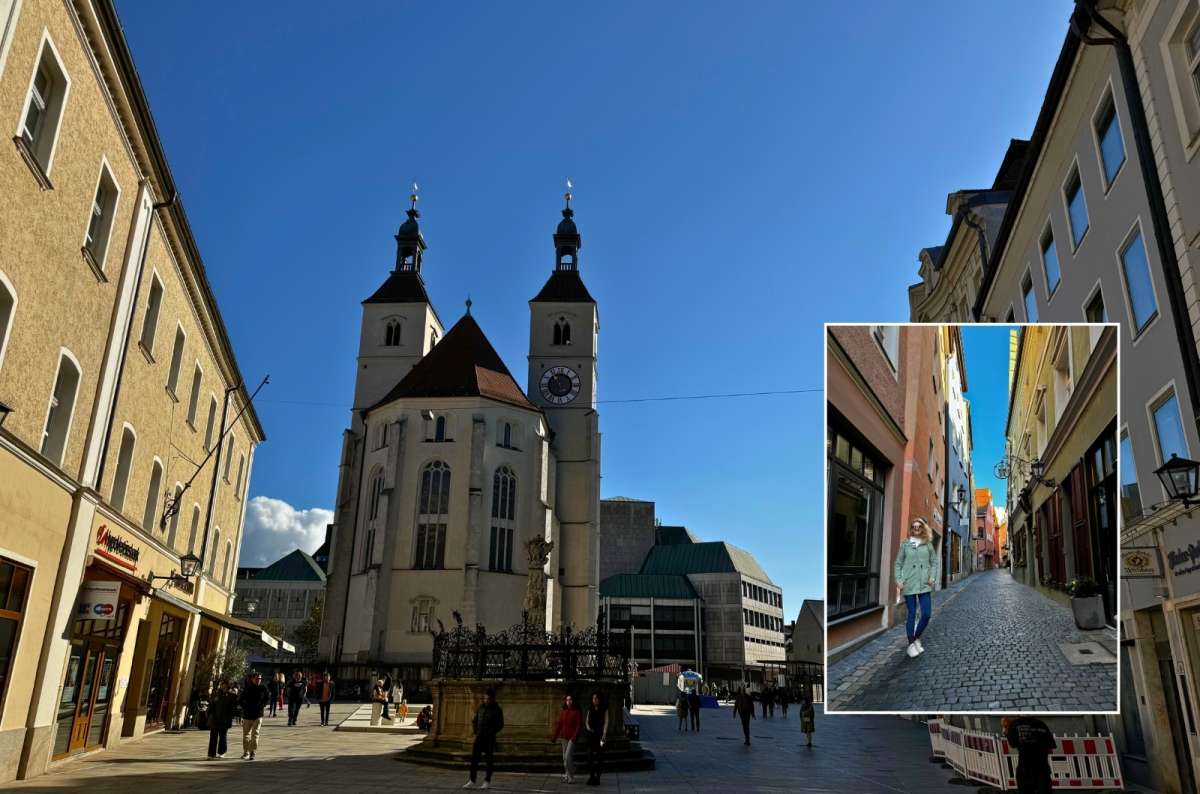
Old European city centers, like this one in Regensburg, have a certain magical feel to them (have you read my ranking of Europe‘s Must-visit cities?)
Day 2, stop 1: St. Peter's Cathedral

St. Peter's Cathedral in Regensburg
-
Opening hours: Monday to Saturday 6:30 am–7 pm (in winter 6:30 am– 5 pm) Sunday from 1 pm
-
Free entry
Regensburg's Old Town is a part of UNESCO World Heritage. Once you're there, you understand why. Old Gothic churches and buildings are breathtaking. The one that stands above the rest is St. Peter's Cathedral, also known as Regensburg Cathedral. It's an iconic gothic building, its gothic decorations and towers reminded me of a Town Hall in Brussels. The interior of the Cathedral is comparably astonishing with the colorful stained glass and silver altar. You can take a guided tour or just walk around with your jaw dropped by yourselves.

Day 2, stop 2: Old Town
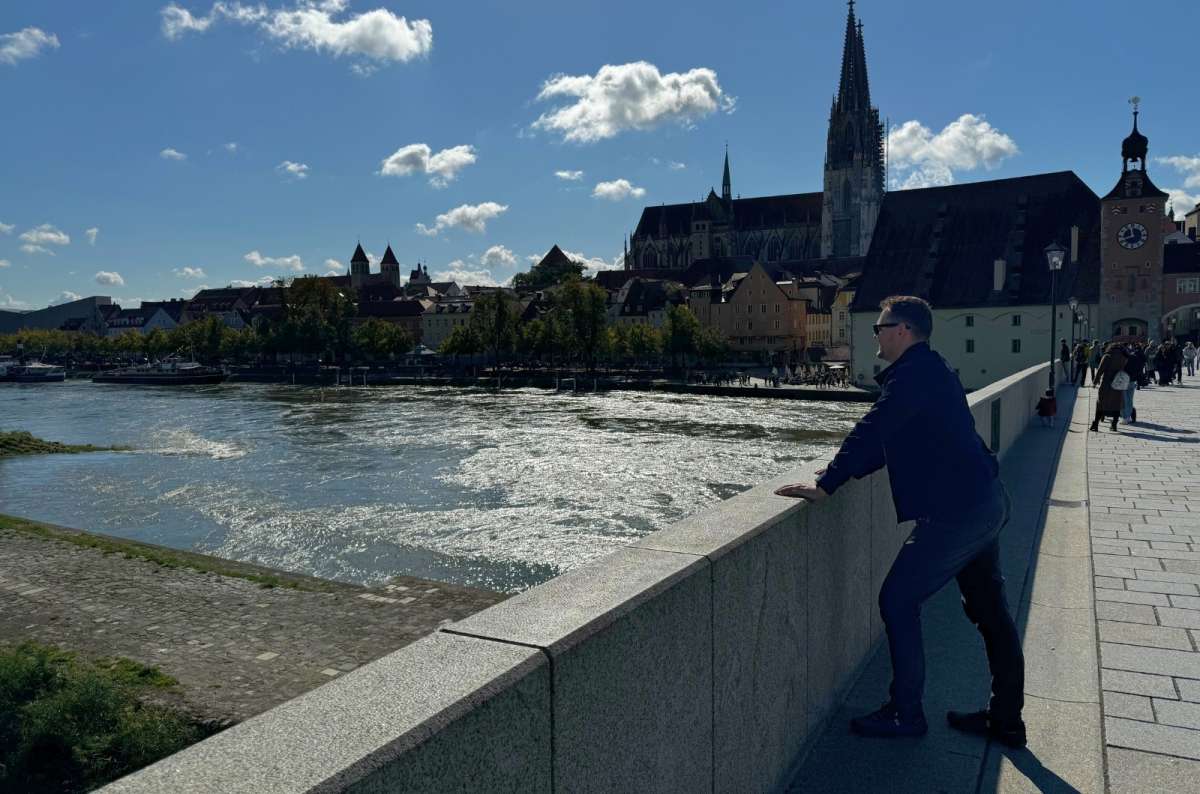
The Roman Stone Bridge in Regensburg provides the perfect conditions to look into the distance and feel like a deep philosophical thinker in the 15th century
The best views of Regensburg you can get are from the stone bridge nearby. The Old Stone Bridge, Steinerne Brücke, is the oldest of its kind in Europe! It's a pedestrian bridge over the Danube River just a few minutes' walk from the cathedral. Once you cross the bridge, on the other side of it there's not much to do, so after you're done taking pictures, take a walk back to the Old Town part.
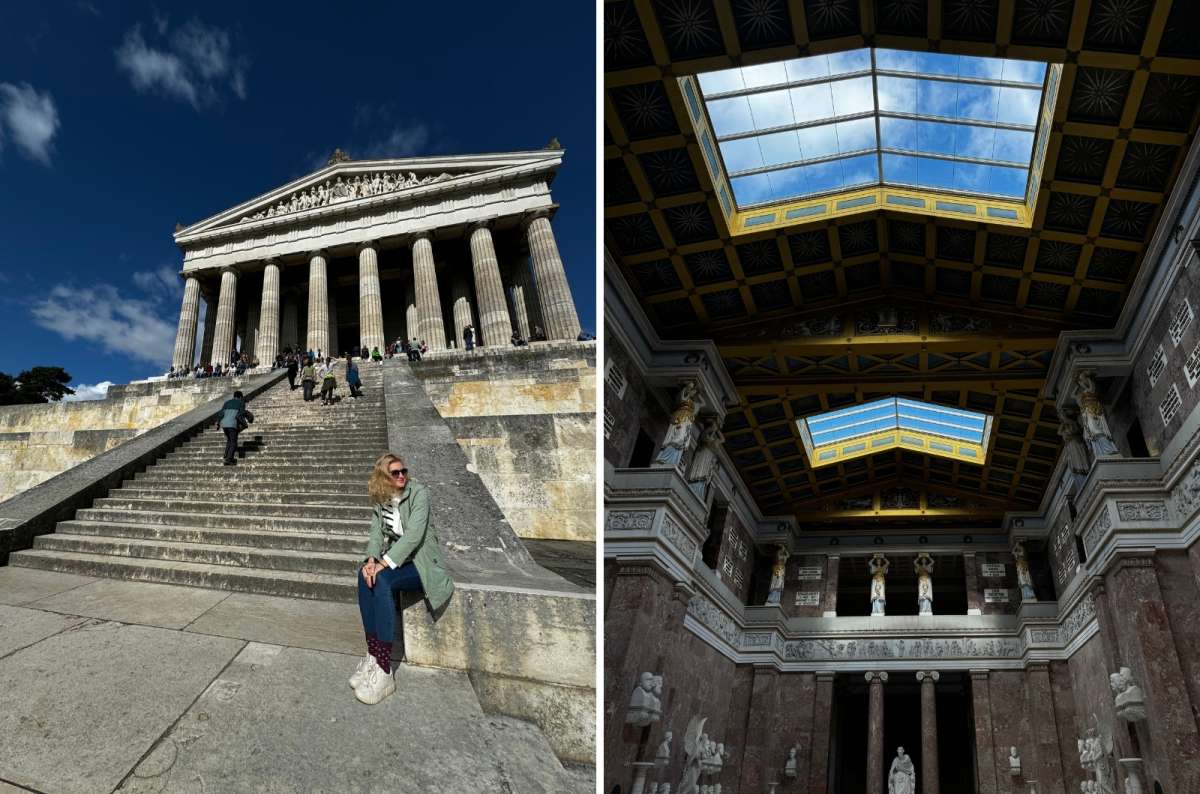
You don’t need to be a Viking to get to this Vallhala @ Regensburg Vallhala
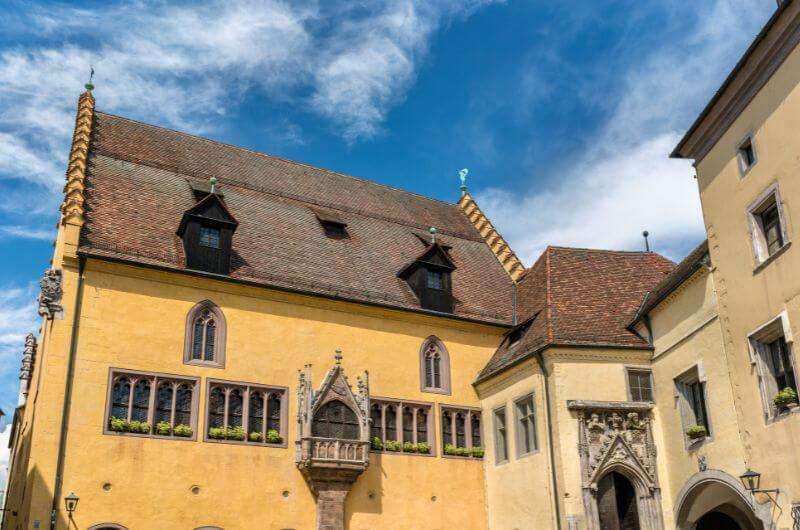
The Old Town Hall in Regensburg Altstadt
In the Regensburg Altstadt center is Altes Rathaus, Regensburg's Old Town Hall. You can visit the medieval courtroom inside too! Or maybe you would like to see an old torture room? You can do that, too, but only with the guided tour.
The best thing you can do around the Altstadt is just to walk around, admire the old buildings, and maybe have a cup of coffee in one of the many cafes there. The interesting mixture of Romanesque and Gothic architecture is something you don’t get to see every day!
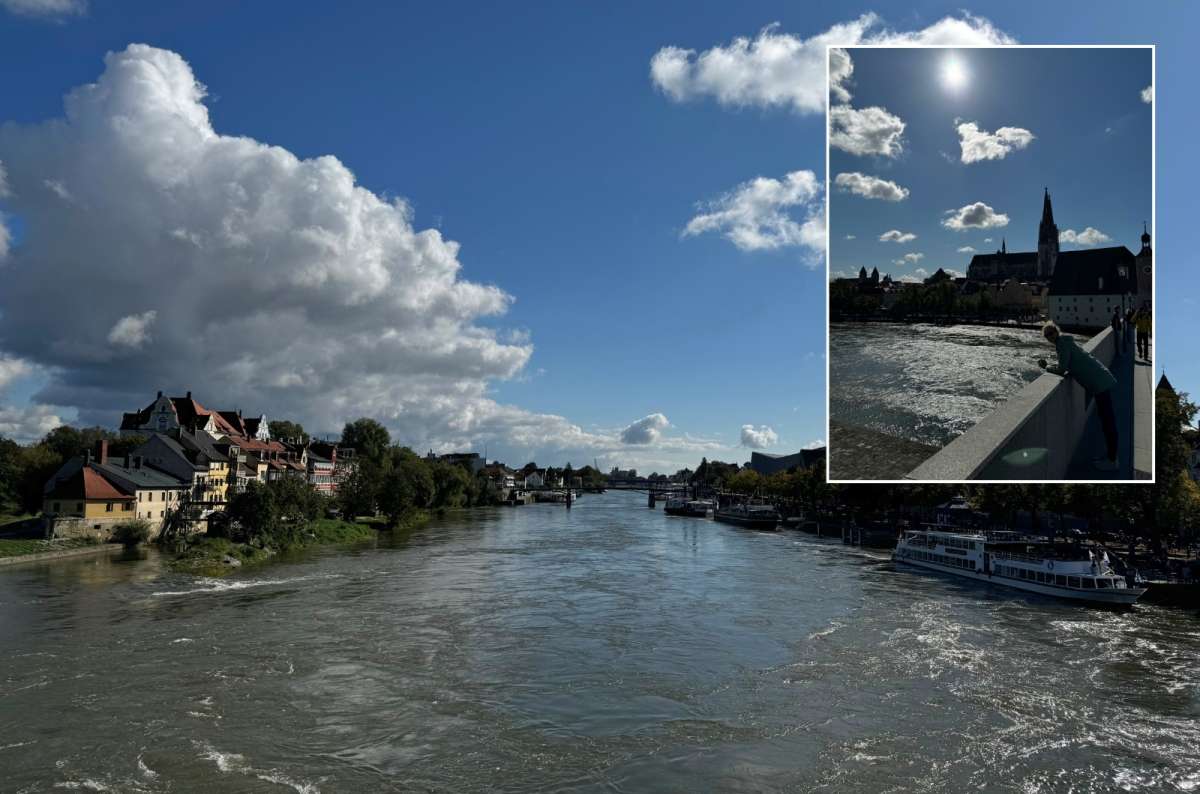
Makes you feel like it‘s all water under the (Roman Stone) bridge
Day 2, stop 3: Thun and Taxis Palace
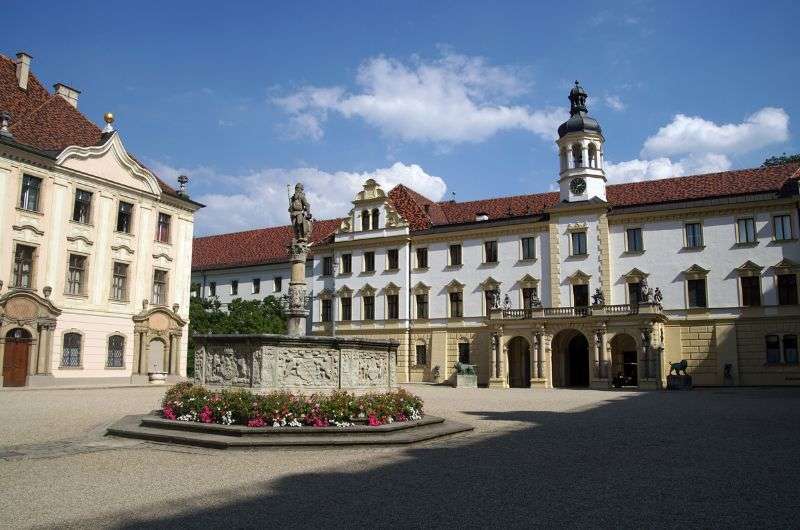
Thurn and Taxis Palace in Regensburg
-
Visits by guided tour only, daily at 10:30 am, 12:30 pm, 2.30 pm, and 4.30 pm
-
State Rooms (guided tours only): Daily at 10:30 am, 12:30 pm, 2:30 pm, and 4:30 pm.
-
Princely Treasury & Stables (self-guided): Thursday to Sunday 11:00 am–4:00 pm (last admission at 3:30 pm)
-
Tickets: EUR 17
If you walk about 10–15 minutes from the Old Town, you get to the Thurn and Taxis Palace. The old German castles became my thing on this trip, they're just so magnificent. And this one is no exception. The neo-renaissance rooms were filled with Rococo furniture; that's how German royalty lived.
You can visit the inside of the castle only with the guided tour, which is conducted in German, but you can get an English audio guide. You can book your 90-minute tour online. The treasury and stables are self-guided.
In winter, a Christmas market takes place in front of the palace.
Day 3: Hike (or Bus) to Eagle’s Nest—Scenery, Nazi history & German food with a view
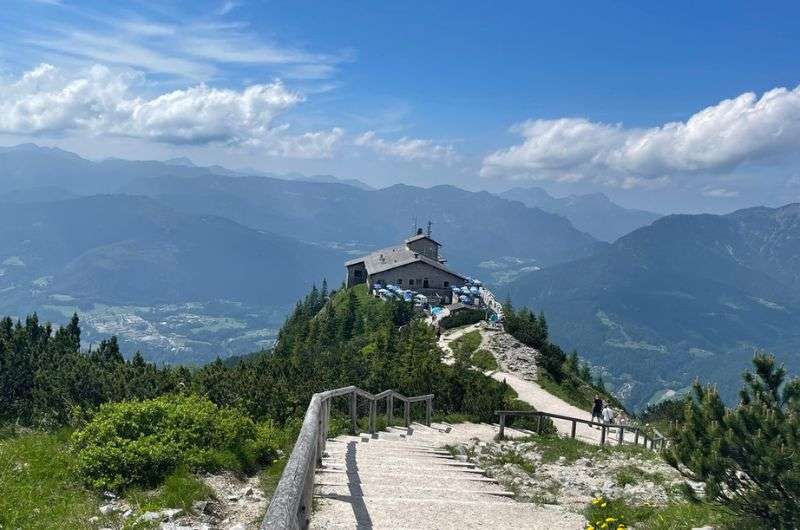
Viewpoint over the Eagle’s Nest with the mountains in the background
Hotel recommendations: Hotel Grünberger superior
Further reading: 5 reasons to visit Eagle's Nest
BRING CASH! The restaurant does not accept cards (I learned this the hard way)
This day will have one stop only, because the visit to Eagle's Nest will take you a bigger part of the day.
Planning note: Theoretically, the Eagle’s Nest can be done faster if you decide to take the bus instead of hiking up and down like I did. For the intent of this itinerary, I’ll assume you’ll do the (really cool!) hike, but you can see my Eagle’s Nest guide for info about taking the bus.
The Eagle's Nest is another symbolic place connected to Nazi German history. People often think it was Hitler's residence. However, that's not completely true. In fact, probably the cruelest person of our time was afraid of it. Allegedly, he was scared that he would get stuck in the elevator that leads through the mountain to the top. What a brilliant idea to build it that way then, huh?
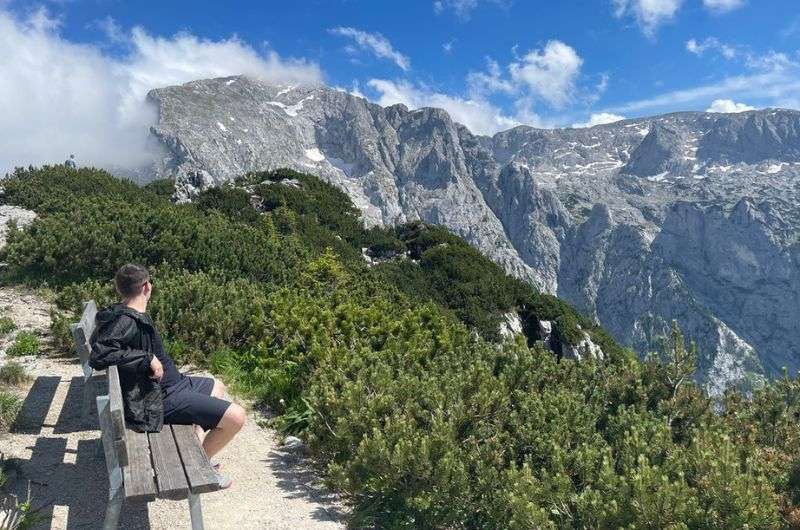
What a view!
Nowadays, it's a restaurant run where you can enjoy a cold beer and some okayish German food. The true highlight of the Eagle’s Nest is the views, which are simply stunning. Really, even if you aren’t into history, the scenery here will make it worth a visit.
Story time: We almost ran the whole hike fueled by the thought of dumplings with a view, but true disappointment came when we learned they don’t accept credit cards... So, be smarter than we were and bring cash with you.
Eagle's Nest hike
Now to the hike. It starts close to the parking lot, where you can leave your car, and leads up the forests and rocky slopes with an elevation gain of 900 meters (2,950 feet).
Officially, four hours are recommended for the hike, but we did it in two hours (and our calves ached for the next three days). I honestly think nobody would take more than 3 hours, and that the dramatic sign at the start saying 4 hours is just trying to make you buy tickets for the bus.
The hike starts under the tree line, so you have to wait for the views until you reach the top. But the pristine nature and solitude on the trip up the mountain make it worth it (get ready for crowds!).
Once you get to the top, you still aren’t at the top. There’s the elevator, which takes you to Eagle’s Nest. If you went by bus, cheer hooray, your bus ticket also applies for the elevator. If you hiked up, well, then you’re screwed if you also want to take the elevator. You can’t buy tickets for the elevator separately, so there’s another 10-minute hike waiting for you. But don’t be sad, the elevator is nothing spectacular.
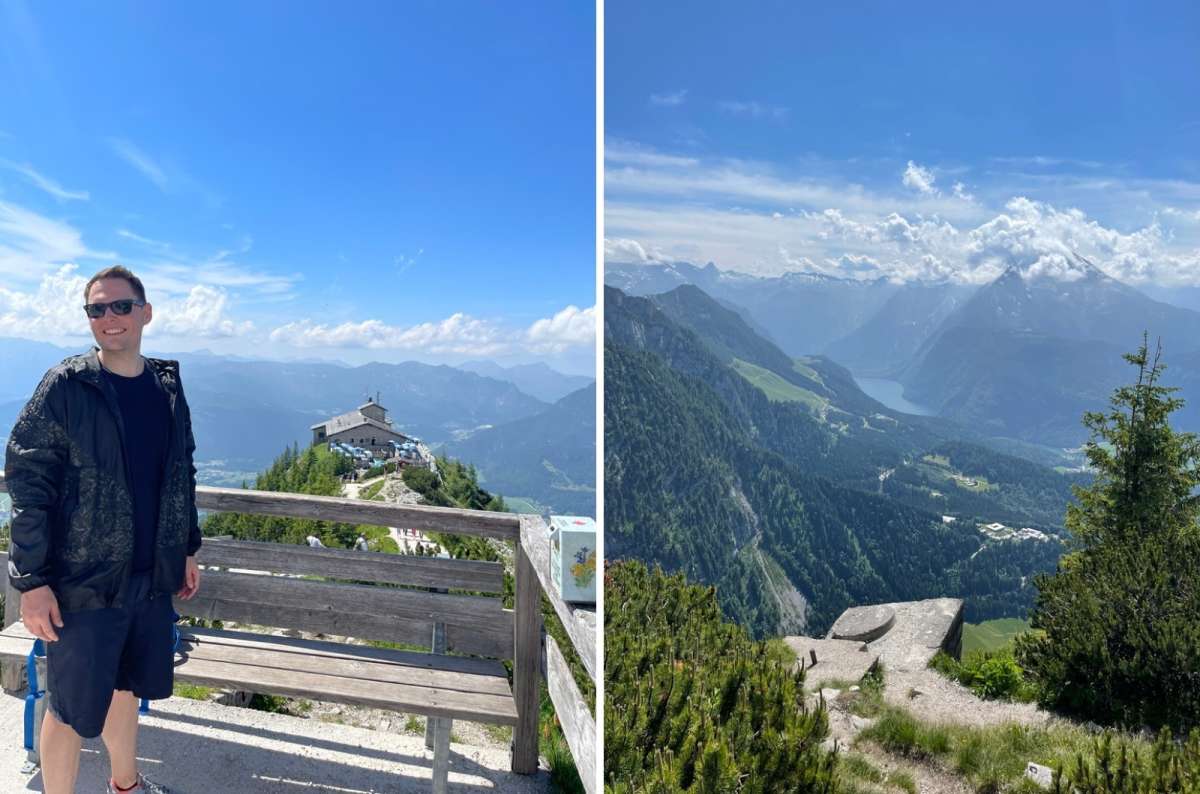
The hike to Eagle’s Nest takes your breath away, literally
Hotel in Berchtesgaden
Kempinski Hotel was our base for the next two nights. It lies on the hill and offers spacious rooms, a sauna, and a pool. As most of the time in Germany, the staff was very friendly and helpful, we enjoyed our stay in this hotel with amazing interior.
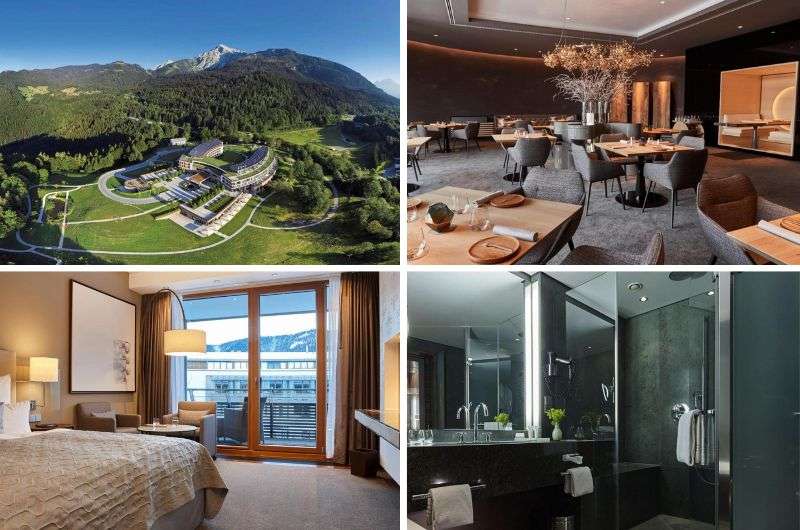
Kempinski Hotel, with its modern interior, is a great place to stay!
Day 4 of the Bavaria itinerary: Berchtesgaden—Salt Mines, Alpine Hikes & National Park Wonders
The highlights of day 4 in Bavaria
Main sites visited on day 4: House of the Mountains, Berchtesgaden's salt mines, Berchtesgaden National Park, Wimbach Gorge, Watzmann Therme
Restaurant tips: Holzkäfer
Hotel recommendations: Hotel Grünberger superior
Further reading: 10 best things in Berchtesgaden
In this Bavaria Itinerary, we have only one day to spend in Berchtesgaden. But I can imagine vacationing there for several days, maybe even weeks. The beautiful view of snow-capped mountains, delicious food and beer, and stunning hikes. This place has it all.
Day 4, stop 1: House of the Mountains
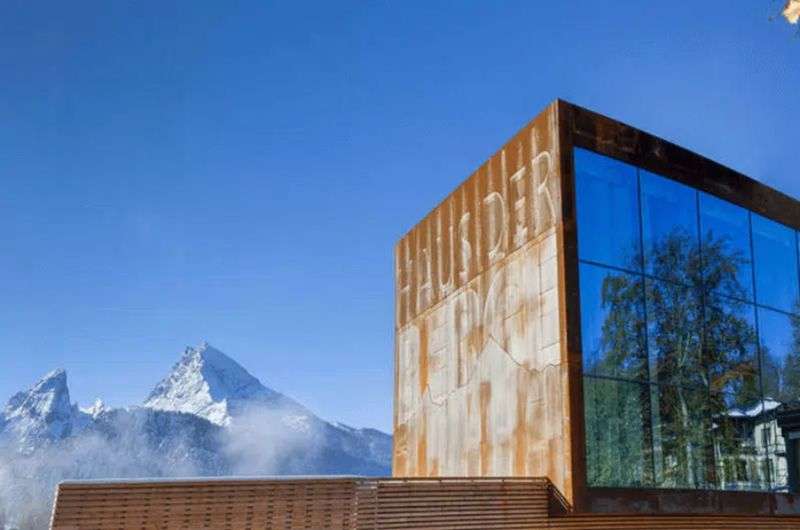
National Park Center House of the Mountains in Berchtesgaden
-
Opening hours: daily 9 am–5 pm
-
Free entry
And by that, I mean literally all, even the museum of Berchtesgaden! The Haus der Berge (House of the Mountains) is Berchtesgaden’s visitor center. It used to be a hotel, and the building will catch your eye immediately. Once you step in, you’ll find yourself in a museum dedicated to Berchtesgaden and to the Alps in general. The exhibition educates about the nature and peaks of the national park.
You can easily spend 2 hours in the museum.
Day 4, stop 2: Berchtesgaden’s salt mines
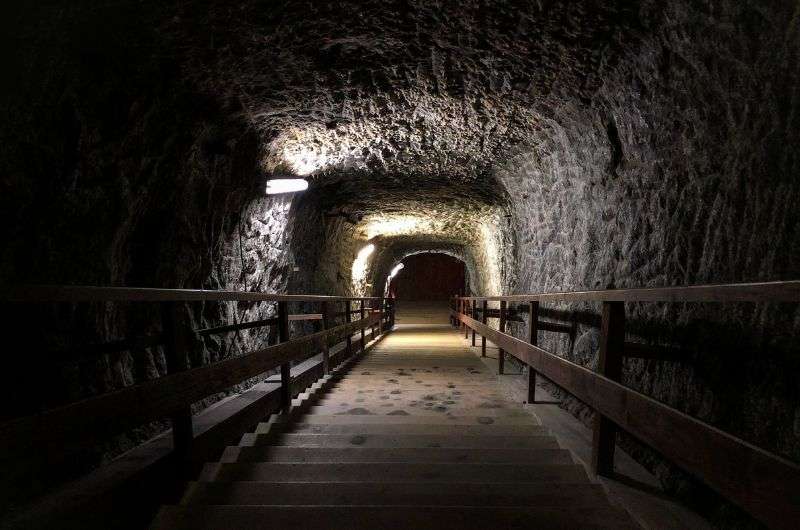
Explore the underground of the Berchtesgaden salt mines
-
Opening hours: daily 9 am–5 pm (April to October) and 11 am–3 pm (November to March)
-
Tickets: EUR 25.50
Another stop, Berchtesgaden’s salt mines. Interesting fact, they're still active! They’ve been used without interruption since 1517. To explore the impressive and salty underground, you can take guided tours in the mines (about 1 hour long). You will see there a salt cathedral, various salt rooms and caves, a salt lake, and miners' slides. Yeah, you heard right, there are two slides. There are no Space Mountain rides, but still, a little salty Disneyland.
Get the tickets online before you go to avoid lines, which can take a while.
Tip: If you like your salt mines with a view, check out Salzwelten Hallstatt in Austria. I put them on day 4 of my Austria itinerary... come to think of it, you could potentially connect that itinerary with this week in Bavaria if you have more time!
Day 4, stop 3: Wimbach Gorge hike and beyond
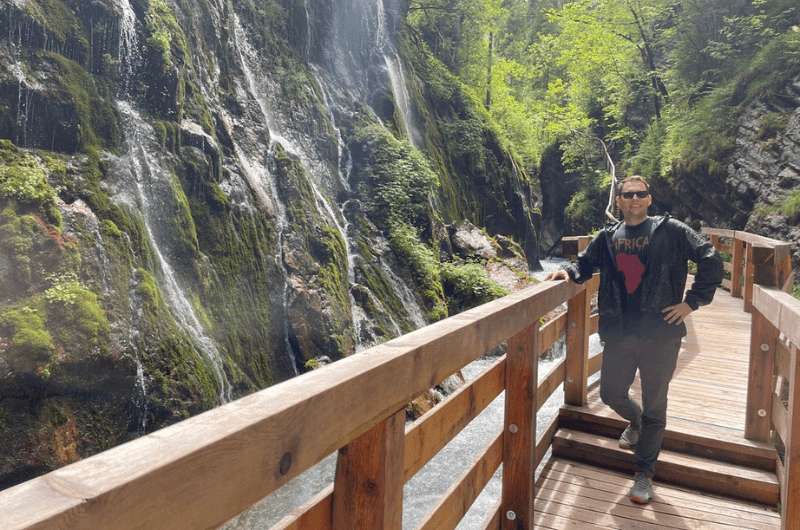
Some of the tourists were especially handsome!
-
Opening hours: daily 7 am– 7 pm in May to end of October (it's closed for the rest of the year)
-
Level: Moderate
-
Distance: 8.7 km (5.4 miles)
-
Duration: 2.5 hours
-
Entrance fee: EUR 4
The whole area of Berchtesgaden National Park is a perfect place for hiking. It offers more than 210 km of hiking trails from easy trails to challenging hard paths. One of those is the Wimbach Gorge hike (Wimbachklamm in German, ja?). The hike starts at the parking lot and leads through the gorge to Wimbachschloss. The hike is a moderate level and will take you about 2.5 hours to complete—a wonderful hike you should not miss.
Alternative: If you’re not up for such a long hike, you can just take the 2 km (1.2 mi) “fun part” of the gorge trail with all the stairs and wooden walkways. I strongly recommend going even further, though, to experience the gorgeous nature of Berchtesgaden.
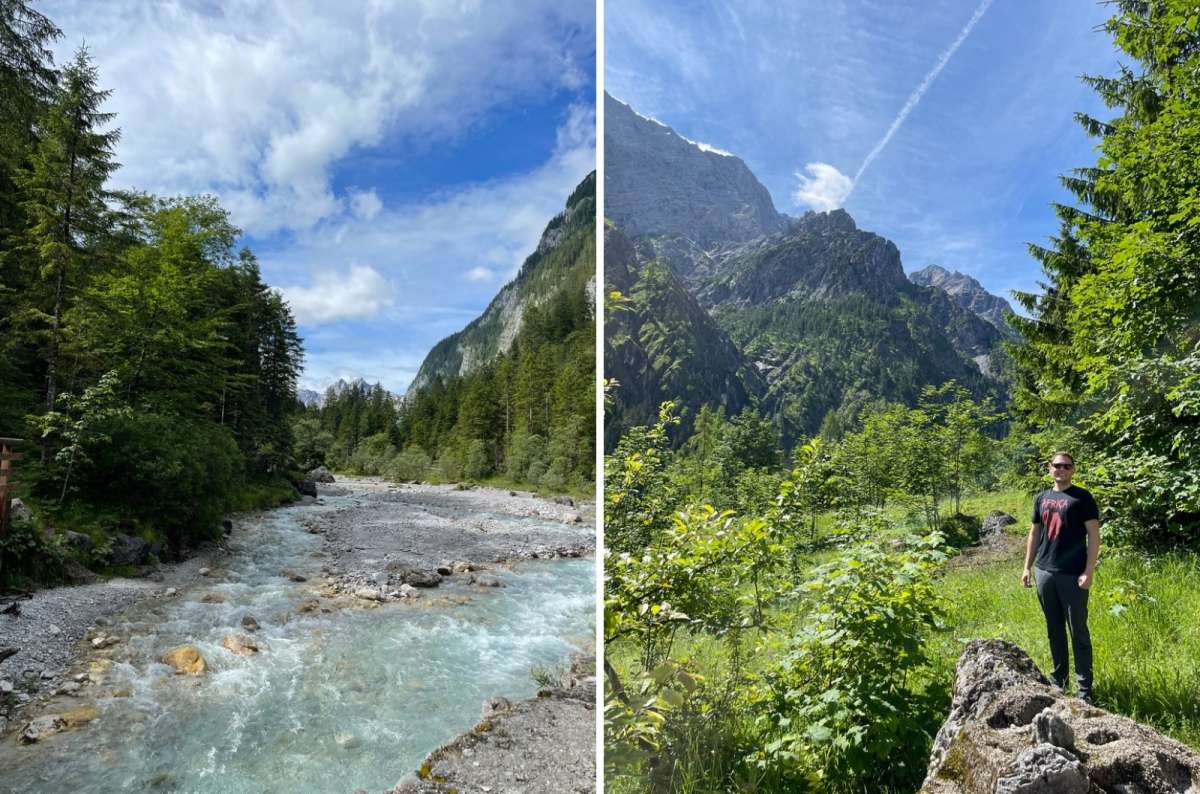
When you venture out past the main gorge walk, you get to see this incredible display of nature
Day 4, stop 4: Watzmann Therme
-
Opening hours: 10 am–10 pm
-
Tickets: EUR 14.50/2 hours, EUR 19.90/4 hours, EUR 22.30/day
And after a long day, let's relax a bit. Watzmann Therme, the thermal baths in Berchtesgaden, are waiting! The baths contain indoor and outdoor pools, saltwater pools, water attractions, and saunas. All of that with a beautiful view of the Alps in front of you. What a way to chill for a bit and recharge your batteries after yesterday's hike!
Day 5: Königssee Lake Cruise, Obersee Hike & Alpine Views
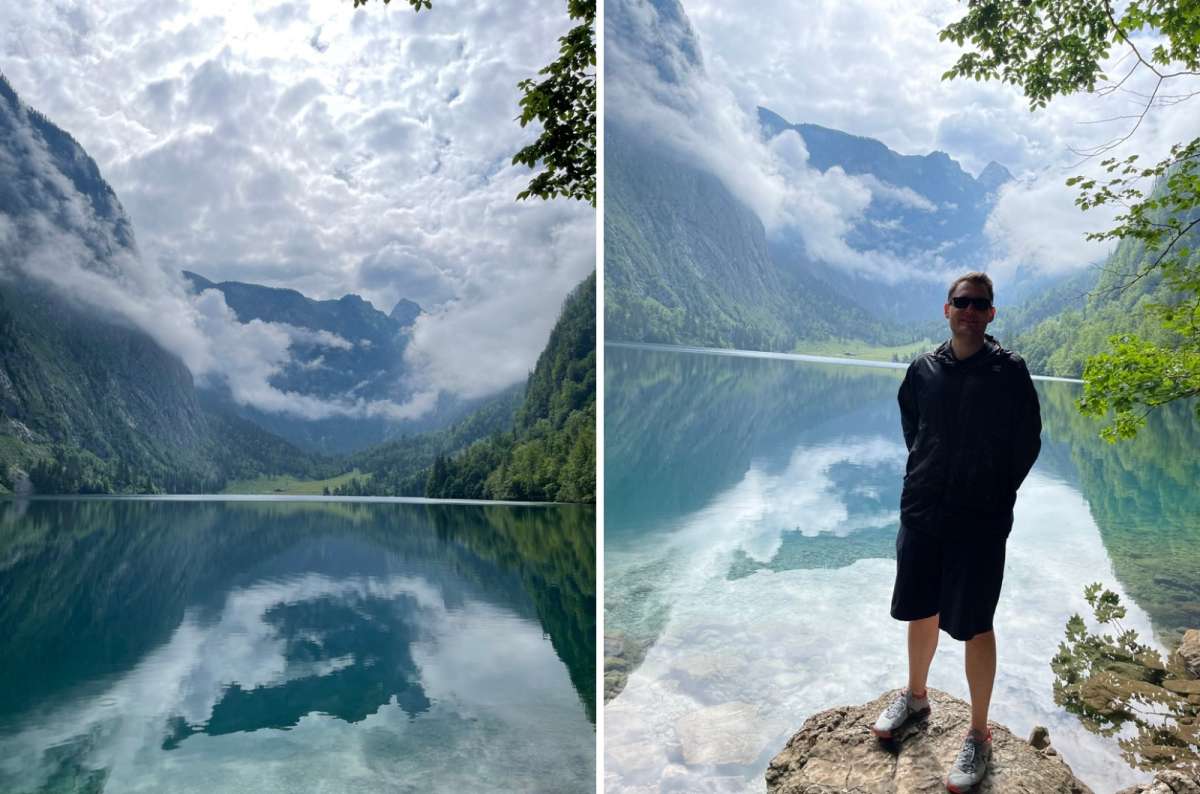
Straight out of a Pinterest board @ Königssee
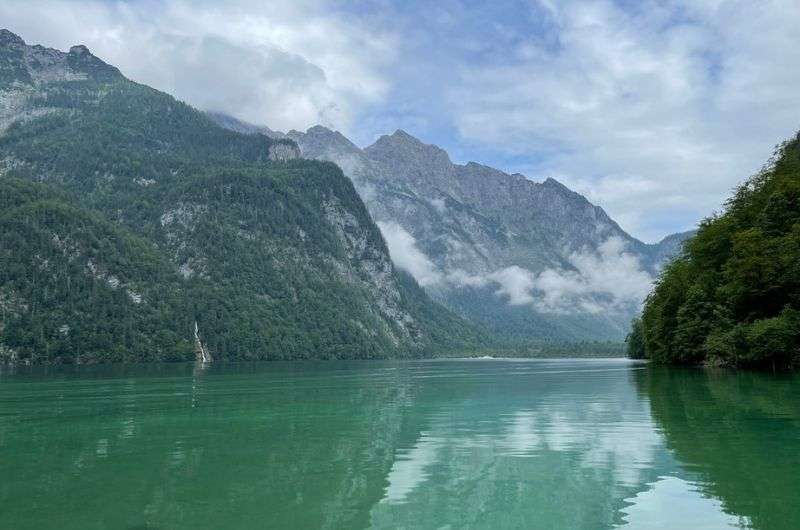
The next stop, Königssee!
Hotel recommendations: Hyperion Hotel Garmisch–Partenkirchen
Further reading: The most beautiful lakes in Bavaria
Another day trip in this Bavaria one-week itinerary is to a lake. Don't reach out to your bikinis just yet; remember, we are still in a temperate climate zone. So, if you're not visiting in summer or aren't Wim Hof's twin, maybe skip this bath.
But definitely don’t skip the whole trip, a cruise on the Königssee is awaiting you there. It's undoubtedly one of the best things to do in Berchtesgaden! And it's only a 15-minute drive away from the city.
Take the cable car to the viewpoint
We parked our car in Schönau am Königssee, the town on the northern tip of the lake. The parking costs EUR 9 per day and it’s just next to Jennerbahn, the cableway that takes you to a viewpoint of the Eagle’s Nest, Watzmann, and the rest of the Alps. However, I think it's super expensive, it costs EUR 43 for a round trip.
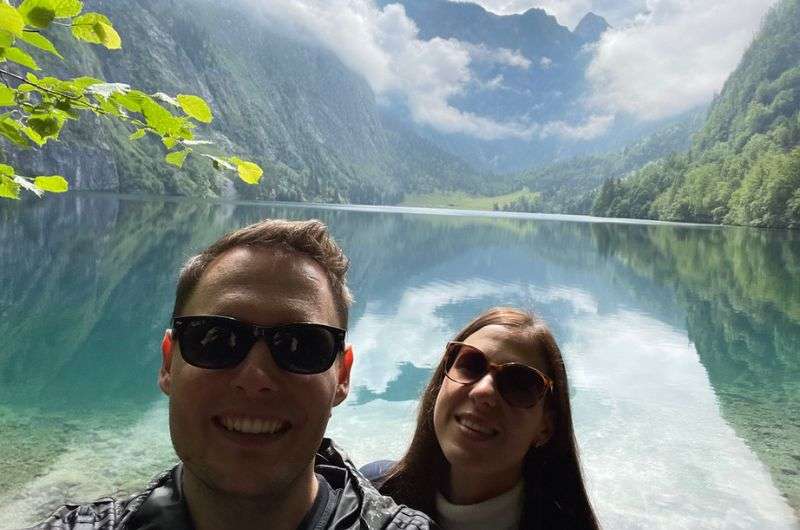
Can't leave without a proper selfie!
Take a boat tour
- Tickets: EUR 22.80
From the parking lot, it takes 10 minutes to get to the Königssee Lake. You can take a trip across the lake in an electric boat, as we did. I strongly recommend getting there early in the morning, because if you're visiting during the main season, you can get stuck in a line for hours waiting for a free boat. You can also buy the tickets online to wait even less time, and one ticket costs €22.80.
Walk to a waterfall
The ship takes you to the other tip of Königssee, where you get off and take a short, 20-minute walk to Obersee. We decided to continue for another 30 minutes to Fischunkelalm, a farm with delicious food and fresh milk, and another 20 minutes to Röthbach Waterfall.
See the map of the trail from Königssee to Röthbach Waterfall
The only little thing that bothered me about the trip was the cruise itself. On the way there, you are enthusiastic and take photos. On the way back, you’re just bored. You’ve already photographed everything, and the ship goes slowly. One journey takes about an hour, but it sure feels like much more.
Hotel in Garmisch-Partenkirchen
If I were you, I would choose a hotel in Garmisch-Partenkirchen for the last three nights. It’s a perfect location for your final trip base. I recommend the Hyperion Hotel Garmisch–Partenkirchen, which offers a large pool, nice modern rooms, and a breakfast buffet with a great selection.
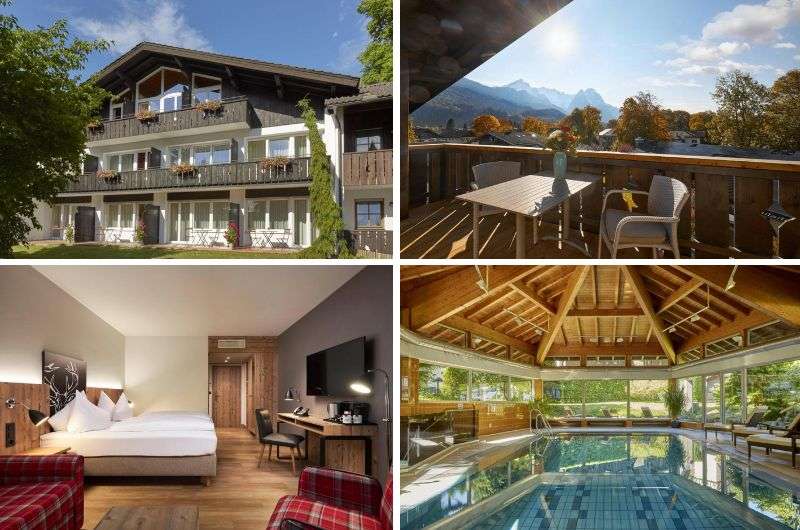
Lovely Hyperion Hotel Garmisch–Partenkirchen with a pool and so comfy beds!
Day 6: Garmisch-Partenkirchen—Zugspitze Views & Partnach Gorge Hike
See the highlights of today’s itinerary on Google Maps
Main sites visited on day 6: Zugspitze, Partnach Gorge hike, Olympic Stadium, Ludwigstrasse
Restaurant tips: 4ECK | Weingart's
Hotel recommendations: Hyperion Hotel Garmisch – Partenkirchen
Further reading: 10 best things in Berchtesgaden
The town of Garmisch-Partenkirchen is a paradise for skiers in winter, for hikers in summer. But it's best known for the highest peak of Germany Zugspitze with amazing views from the top!
Day 6, stop 1: Zugspitze
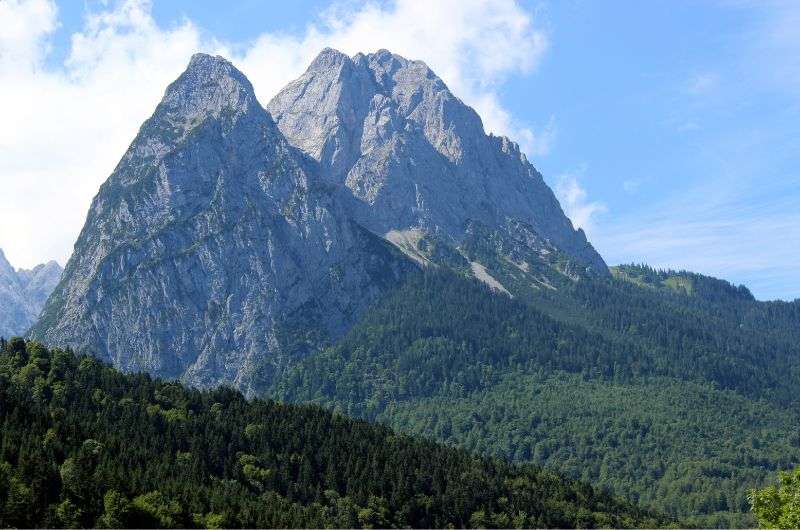
The highest peak of Germany, Zugspitze
-
Opening times: daily 8 am–6 pm (it can vary throughout the year, check the official website before you go)
-
Tickets: EUR 75 (buy them online to skip the line)
You can hike Zugspitze, but as we had only a day in the itinerary for Garmisch-Partenkirchen, we decided to take a cable car, because the hike would take almost a whole day. On top of that, the panoramic views from the cable car are something you shouldn't miss. I recommend going in the morning to get the best scenery.
Day 6, stop 2: Partnach Gorge hike
-
Opening hours: daily 8 am– 8 pm in June to September, 8 am–6 pm in October to May
-
Level: Moderate
-
Distance: 7.1 km (4.4 miles)
-
Duration: 3 hours
-
Entrance fee: EUR 10
After the Zugspitze trip, drive about 45 minutes to the next stop on the list, which is the Partnach Gorge hike. It starts close to the huge parking lot, where you can leave your car, and next to the Olympic Stadium. The hike is a moderate level, it'll take you about 3 hours to complete it. The gorge is beautiful, you'll pass a few tunnels in the rocks on your way, which makes it a little more dramatic! Don't forget to wear proper shoes, the path can get slippery.
Day 6, stop 3: Ludwigstrasse
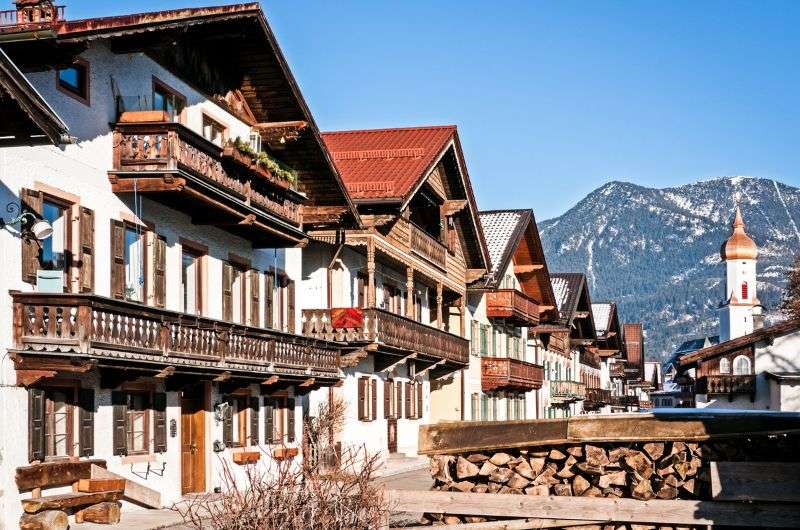
Lovely streets of Garmisch-Partenkirchen
If you're not too tired after the hike, I recommend taking a walk through the eastern part of the town, Partenkirchen. Its main street is Ludwigstrasse, which is nice and romantic for an evening stroll, don’t you think? The houses in the street have colorful façades and wooden balconies, all well-preserved. Nice place to walk around or have a nice romantic dinner in one of the restaurants.
Day 7: Neuschwanstein Castle Visit—How to See Germany’s Most Famous Palace
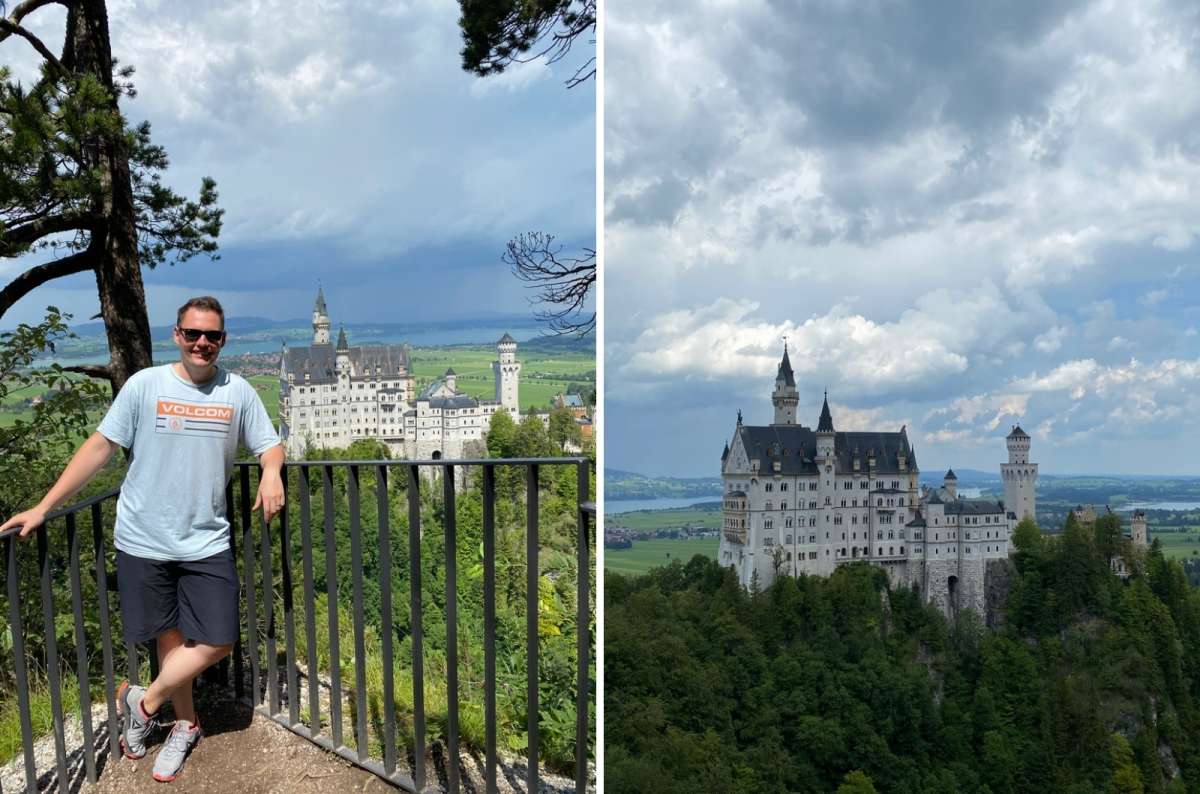
Neuschwanstein Castle
Hotel recommendations: Hyperion Hotel Garmisch – Partenkirchen
Further reading: Is Neuschwanstein worth visiting?
-
Tour times: April to October 15, daily 9 am to 6 pm, October 16 to March 31, daily from 10 am to 4 pm
-
Tickets: EUR 23.50
I've saved this gem of the Bavarian Alps as this itinerary's grand finale. Neuschwanstein Castle is its real name, and not only a tongue twister, but it sure looks like one! The pronunciation is devil's work, unlike the divine castle. It looks like a castle straight from a fairy tale, It's also rumored that it was Walt Disney's inspiration for his castles!
You can take a nice walk to the castle from the parking lot or take a bus. I recommend walking to the castle, especially if you’re not time-oriented. It’s only 1.2 km (0.7 miles) long, but rather steep, it can be challenging for less fit people. But once you overcome it and get to see the scenery from up the hill, you will immediately forget about the hike.
The most impressive thing about Neuschwanstein is definitely the exterior. If you expect the interior of the castle to be that breathtaking, too, I have to disappoint you. This is not to say you shouldn’t go inside, just don’t set your expectations too high. There are only 12 completed rooms, which are not even fully furnished—the Throne Room with no throne speaks for itself. Therefore, the tour takes only about 30 minutes. Also, note that taking photos inside the castle is prohibited.
Also, you can visit the inside only with a guide. If you're not into that, it can bother you a bit. You can get the tickets online in advance, which I—as always—highly recommend.

If it's not on socials, you haven't been there, right? Don’t worry, there's a place only 15 minutes away for a perfect selfie! Marienbrücke (Mary's Bridge) is that place. The way there is once again a bit steep, and once you get there, you'll probably have to wait a while. Everybody wants this Instagram-worthy selfie, so expect a line there.
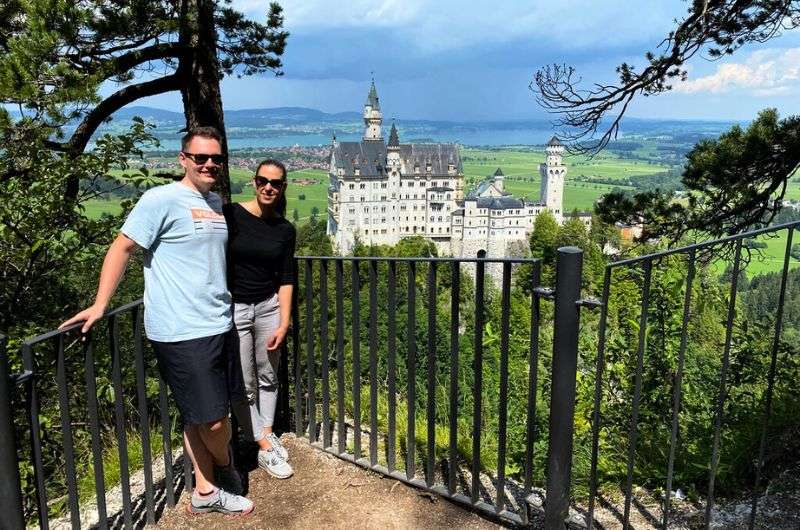
Perfect spot for a picture!
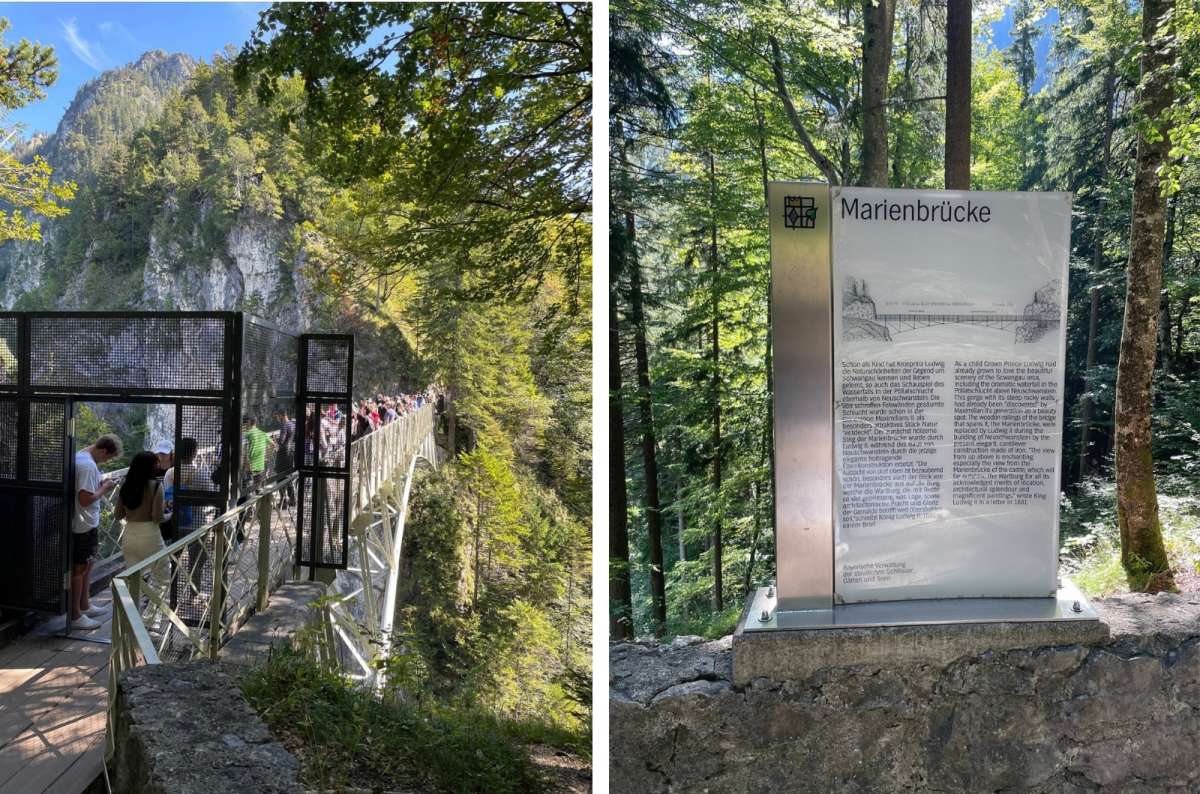
Just keep in mind that you might have to wait a while for your photo, but at least they gave you a long information board to make time pass faster
If you are not lazy, though, don’t stop at the bridge and continue up the hiking trail. You will find more viewpoints along the road, higher on the cliffs. It’s quite challenging, so be sure to have the right shoes for the dirty road. On the other hand, most people will be waiting in line on the bridge, while you take perfect pictures of the castle with the mountains in the background and the gorge in front.
My top tips for visiting Bavaria
-
Don’t rely on cards. Cash is still king in half of Bavaria, especially in small towns, mountain huts, and annoyingly—some restaurants (like the one at the Eagle’s Nest!).
-
Rent a car. Trains are good, but limited reach in alpine areas mean renting a car is your smartest move. Bonus: Autobahns don’t have speed limits in many zones. Don’t be shy—just don’t be stupid.
-
Mondays are museum dead zones. Many museums and castles shut down on Mondays, so plan your schedule accordingly.
-
Get to tourist hotspots early. Places like Neuschwanstein Castle and Königssee look peaceful in photos, but tour buses arrive at 10 am. Be there before them.
-
Restaurant service isn’t rude, it’s just German. Waitstaff won’t hover or fake enthusiasm.
-
Book castle tickets online. Neuschwanstein tickets sell out daily. Reserve in advance. Seriously.
-
Sundays are for church and silence. Stores close, streets are empty—don't leave your souvenir shopping until the end of the weekend!
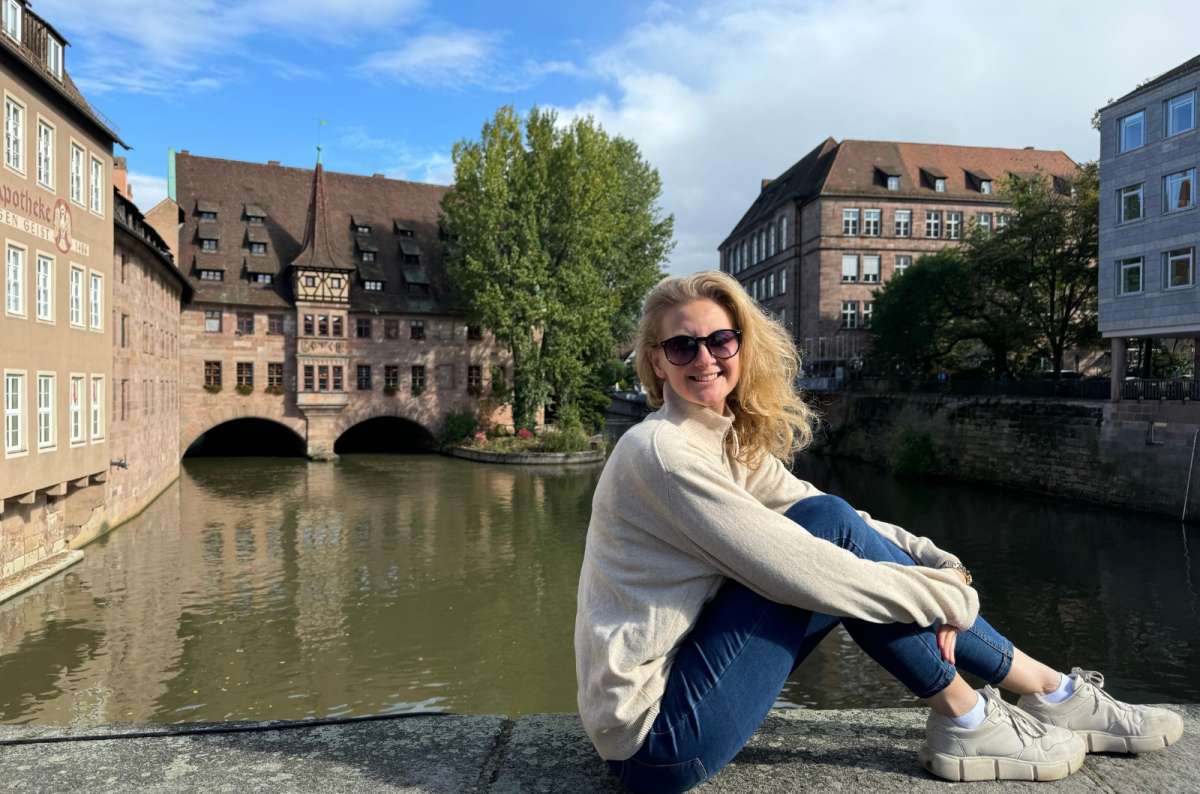
Bavaria never disappoints, Nuremberg especially
Sometimes, all you need to do is take the first step... I've filtered out the best hotels in Nuremberg for you
Save it for yourself to come back to later, or share with your friends on social media!
You might also be interested in reading:
This post contains affiliate links. If you make a booking through one of my links, I may earn a small commission—at no additional cost to you. Thank you for your support!
Day 1: Explore Nuremberg’s History—Medieval Castles, Nazi Sites & Bratwurst
Day 2: Regensburg’s Old Town, Roman Bridges & Thurn und Taxis Palace
Day 3: Hike (or Bus) to Eagle’s Nest—Scenery, Nazi history & German food with a view
Day 4 of the Bavaria itinerary: Berchtesgaden—Salt Mines, Alpine Hikes & National Park Wonders
Day 5: Königssee Lake Cruise, Obersee Hike & Alpine Views
Day 6: Garmisch-Partenkirchen—Zugspitze Views & Partnach Gorge Hike
Day 7: Neuschwanstein Castle Visit—How to See Germany’s Most Famous Palace
My top tips for visiting Bavaria
You might also be interested in reading:
Day 1, stop 1: Nuremberg Castle
Day 1, stop 2: Albrecht Dürer’s house
Day 1, stop 3: Hauptmarkt + Frauen Kirche
Day 1, stop 4: Nuremberg Trial Memorial
Day 1, stop 5: Documentation Center Nazi Rally Party
Day 2, stop 1: St. Peter's Cathedral
Day 2, stop 3: Thun and Taxis Palace
Day 4, stop 1: House of the Mountains
Day 4, stop 3: Wimbach Gorge hike and beyond
Day 4, stop 4: Watzmann Therme


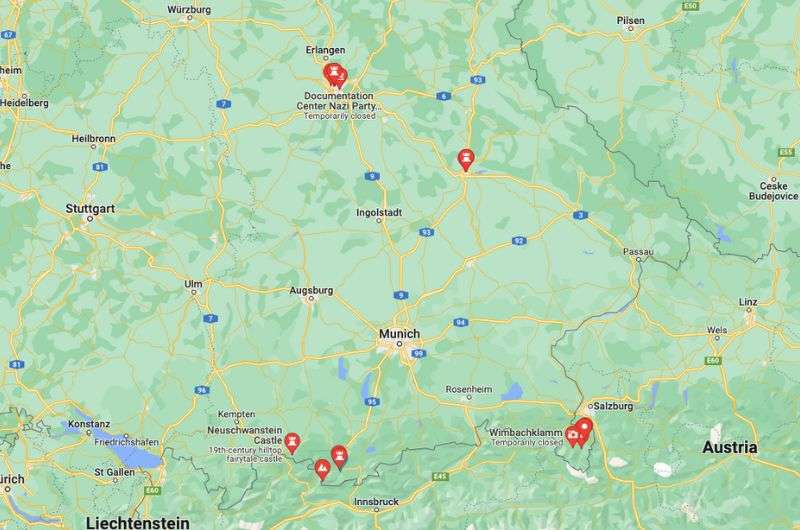


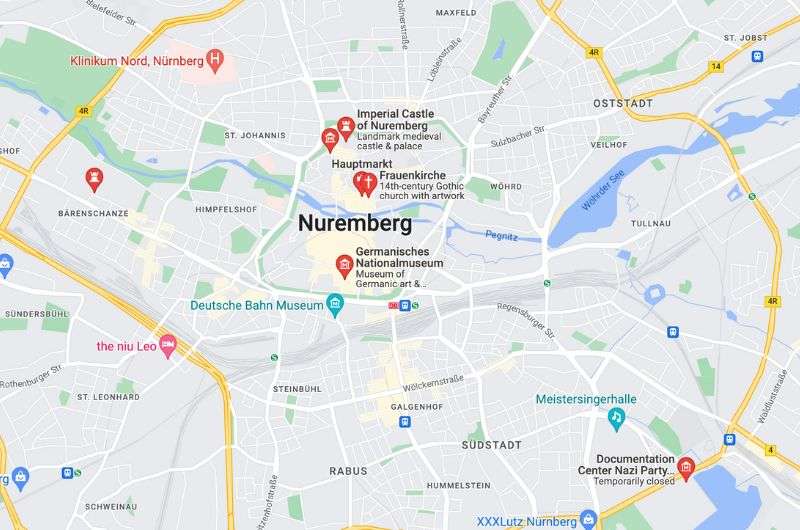
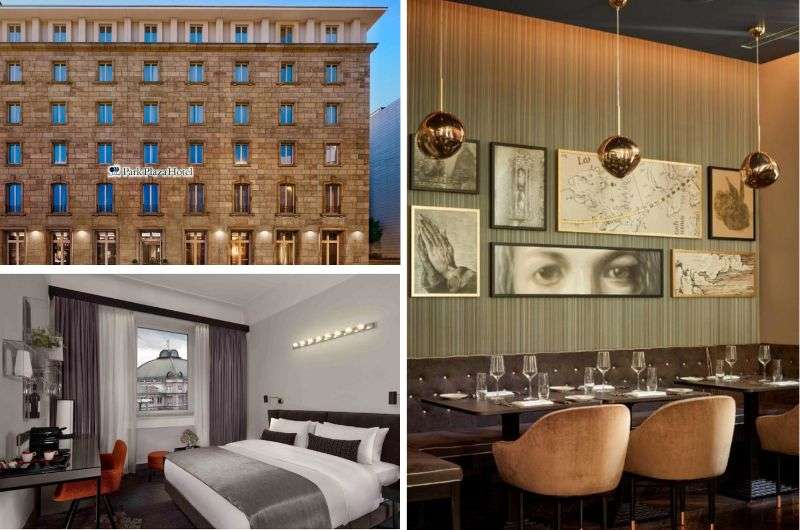
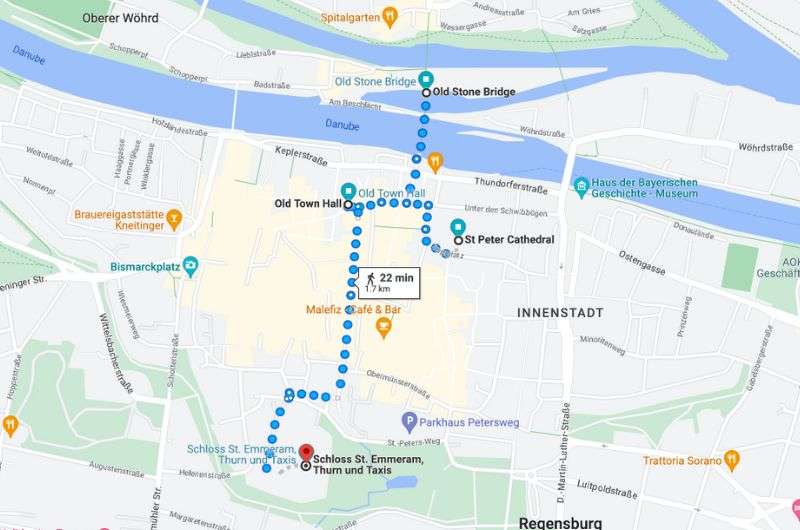
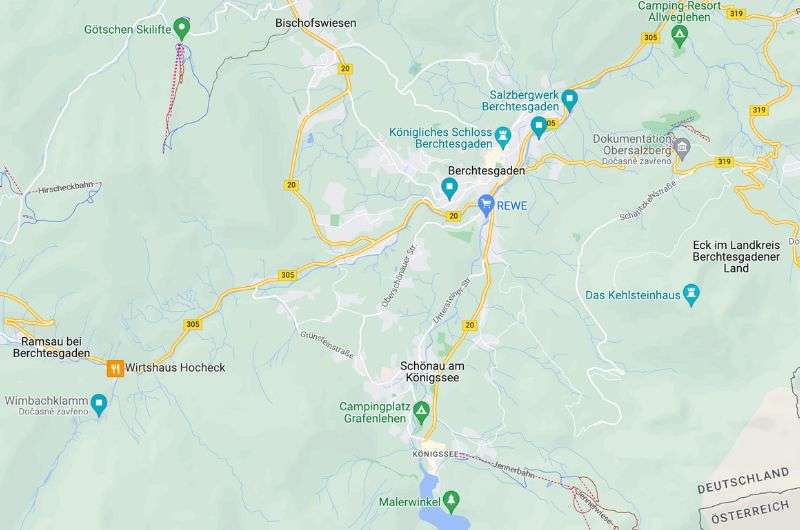
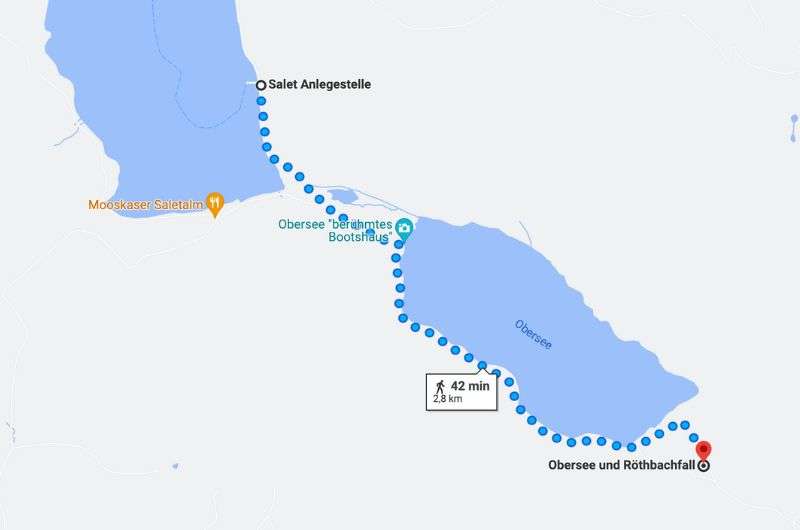
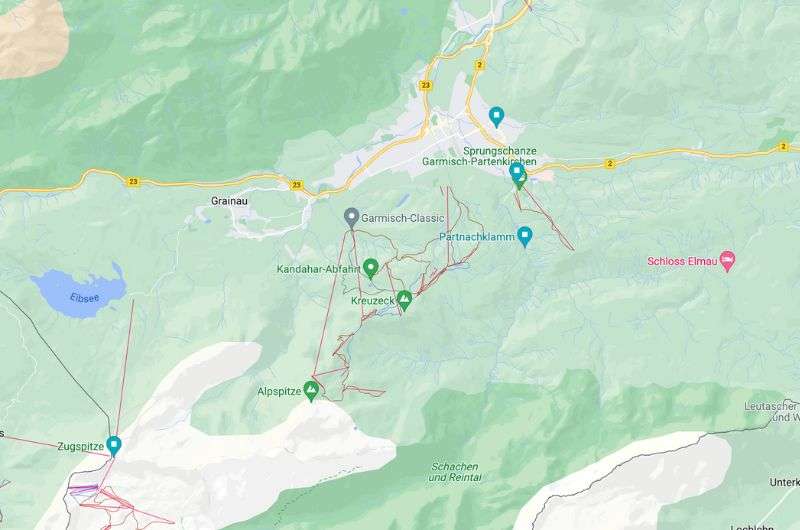
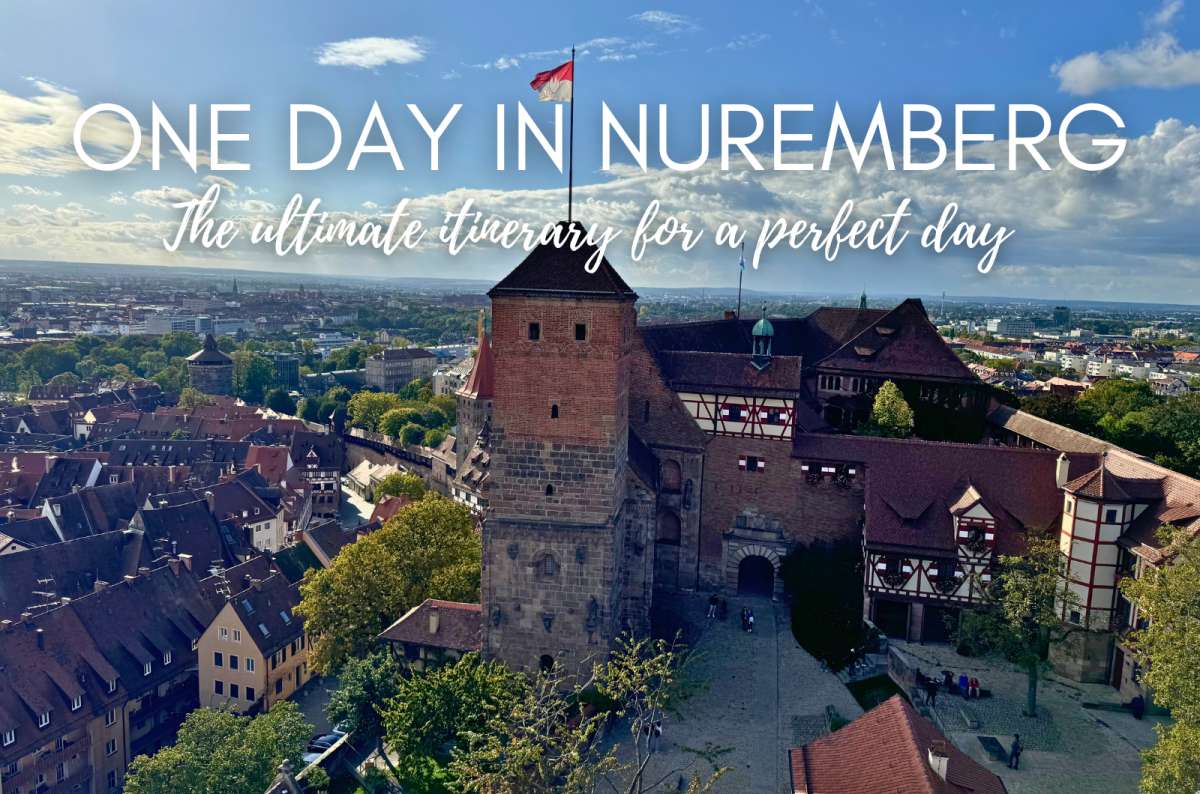

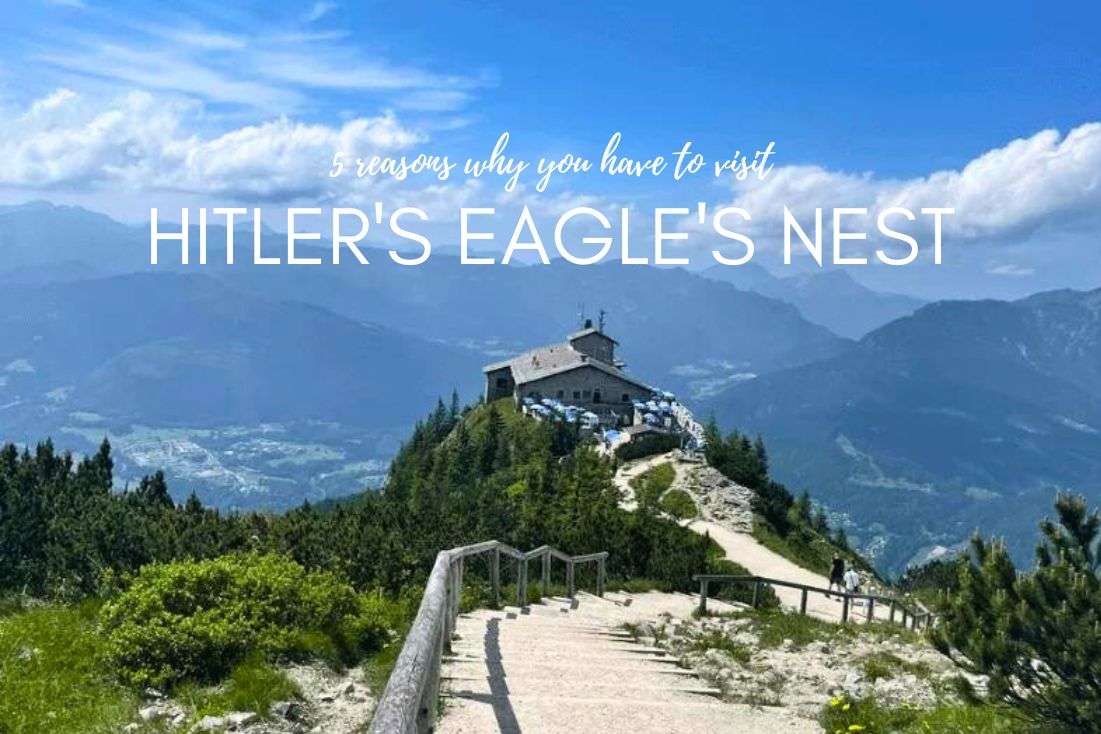



Comments | Thoughts? Give us a shout!